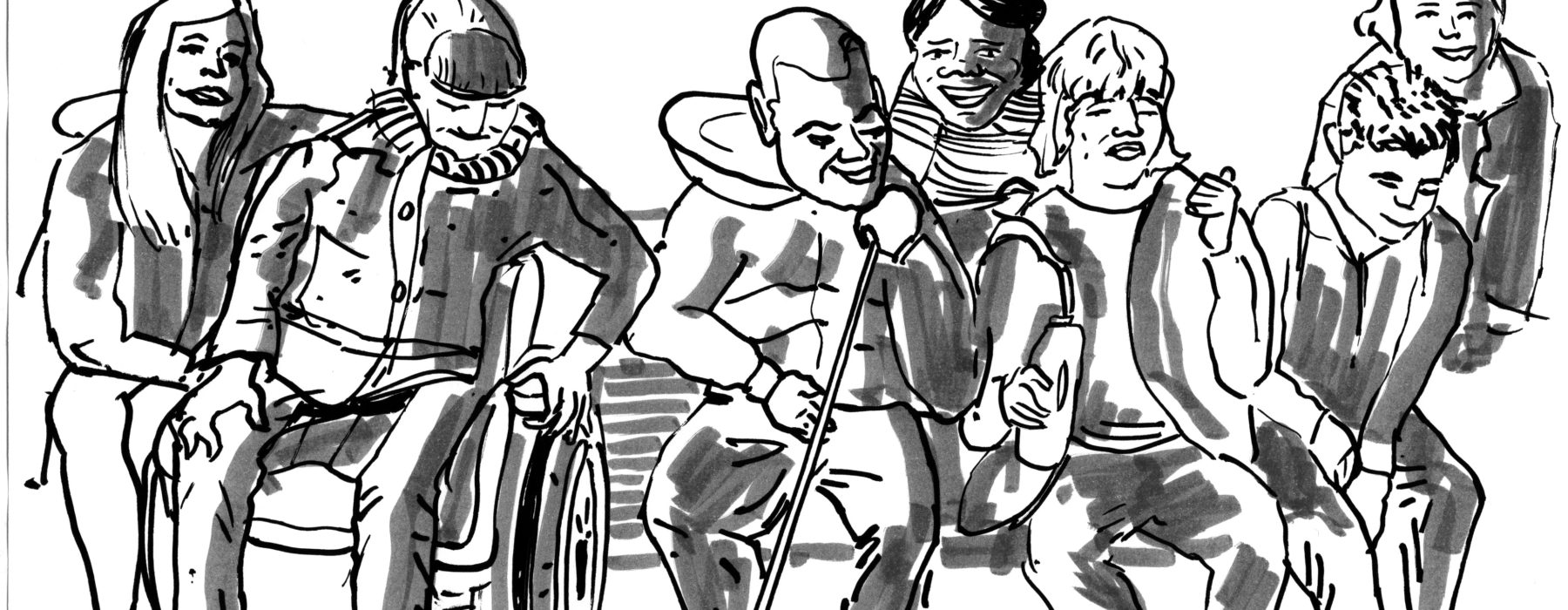Space to be Different: Sense Arts Inclusive Arts Strategy 2019-2022
“My work is important. I have something to share”
Paul Hicken, Sense artist
We are arts. We are social care.
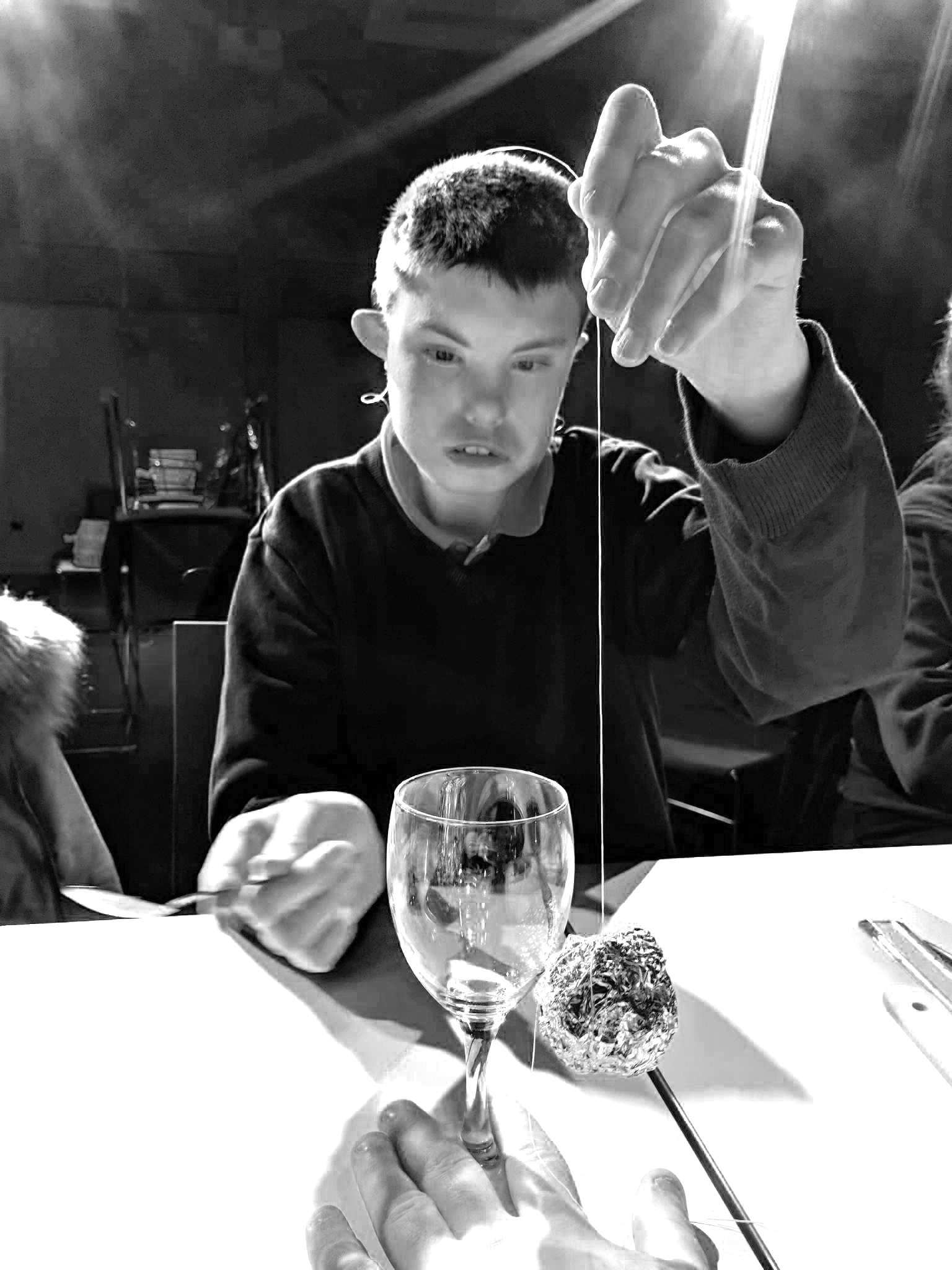
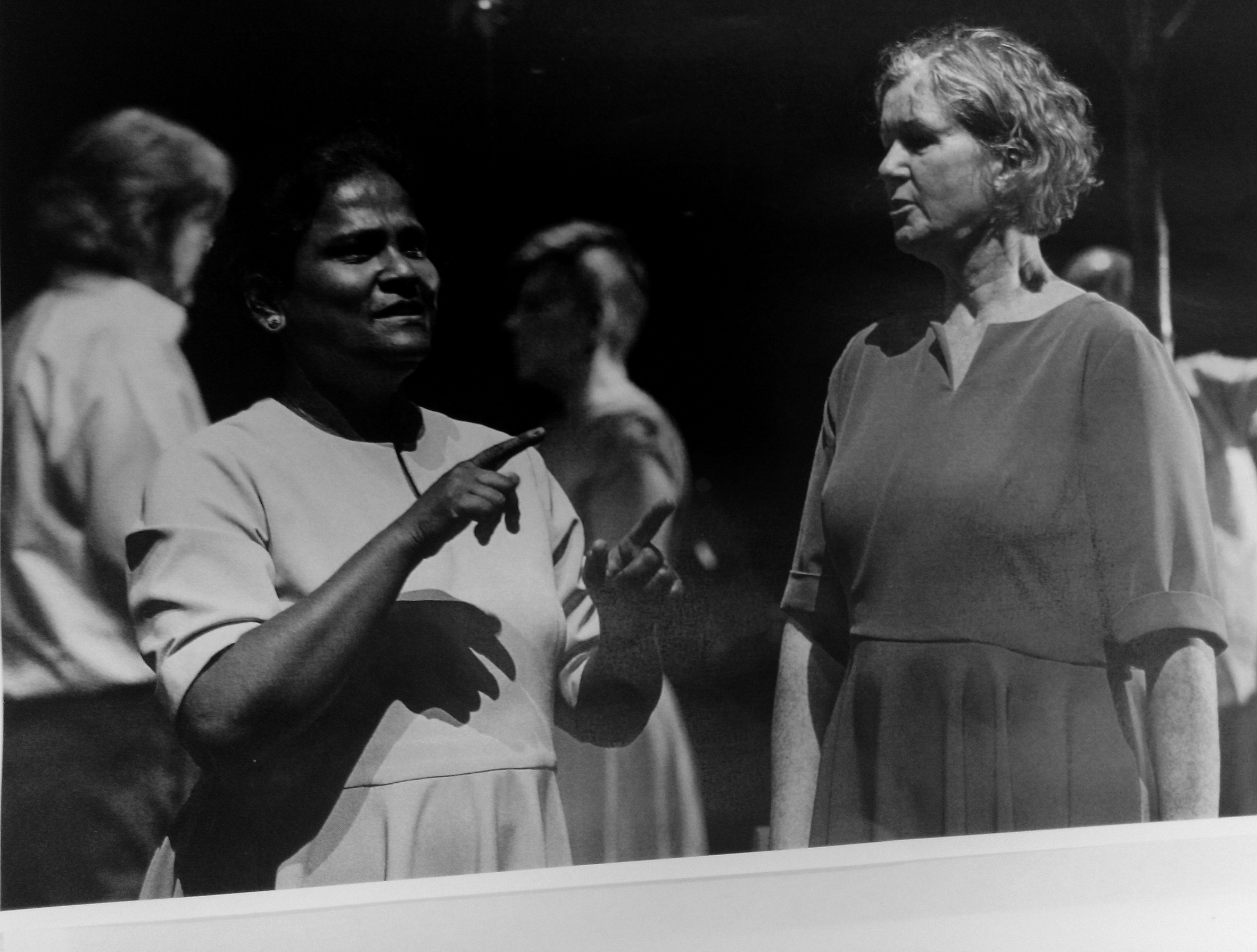
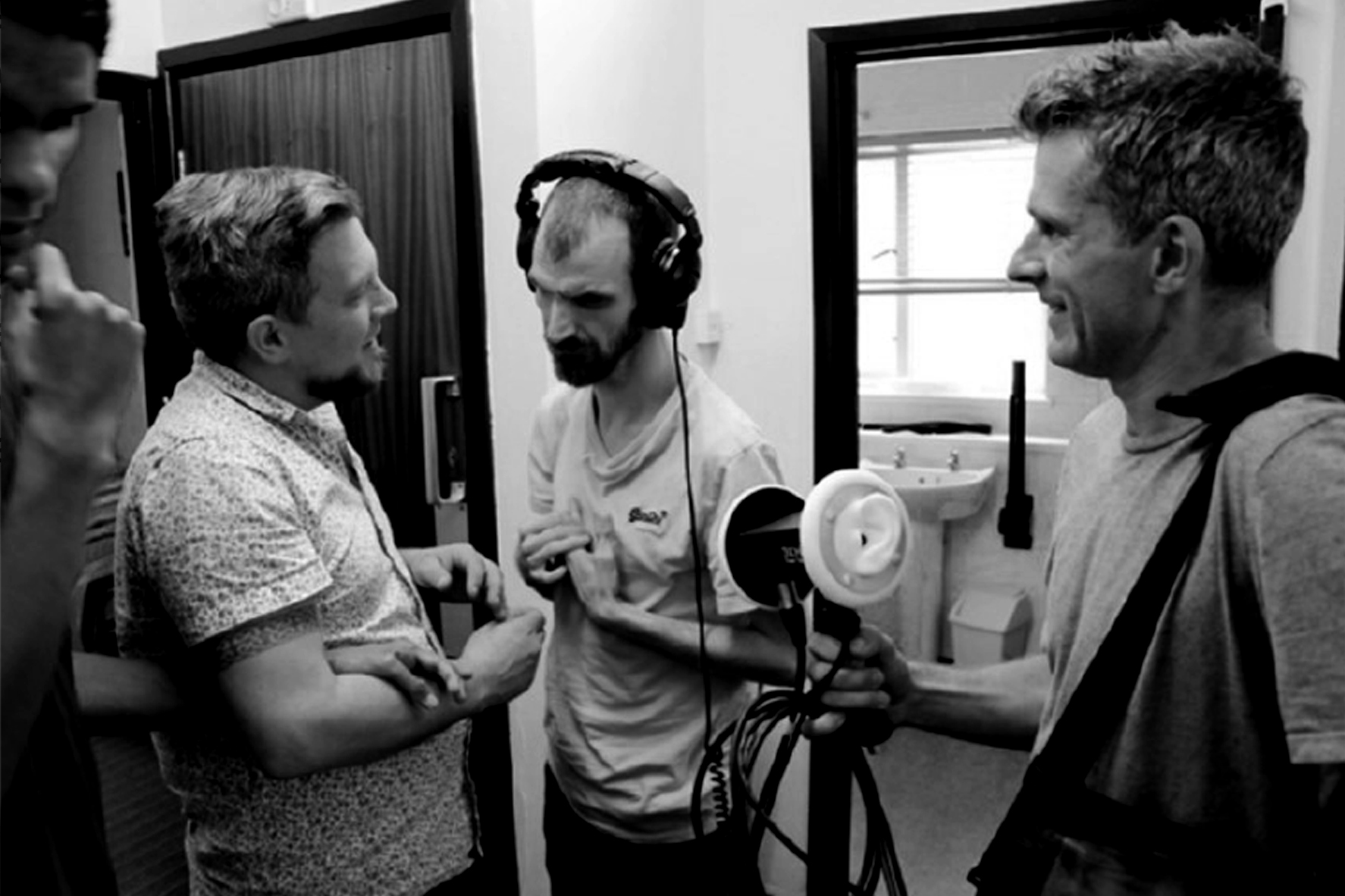
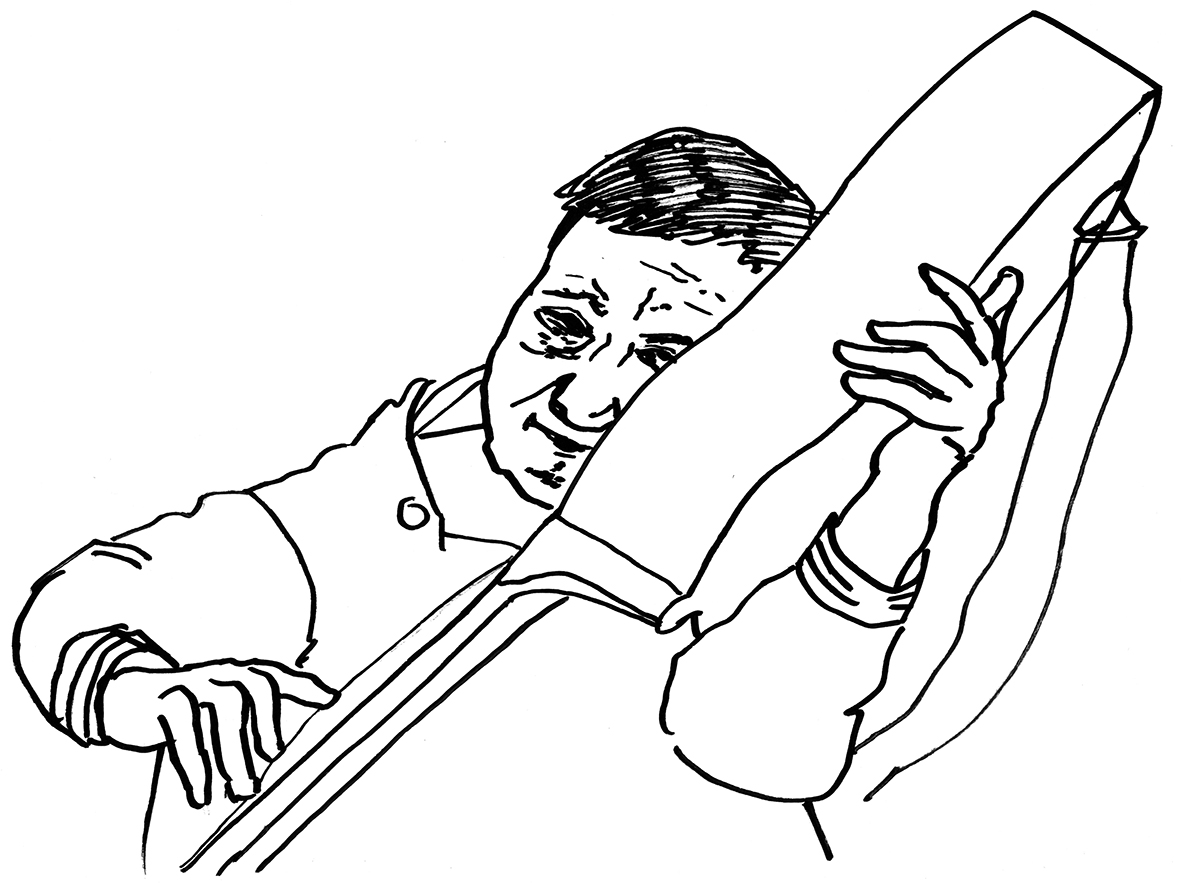
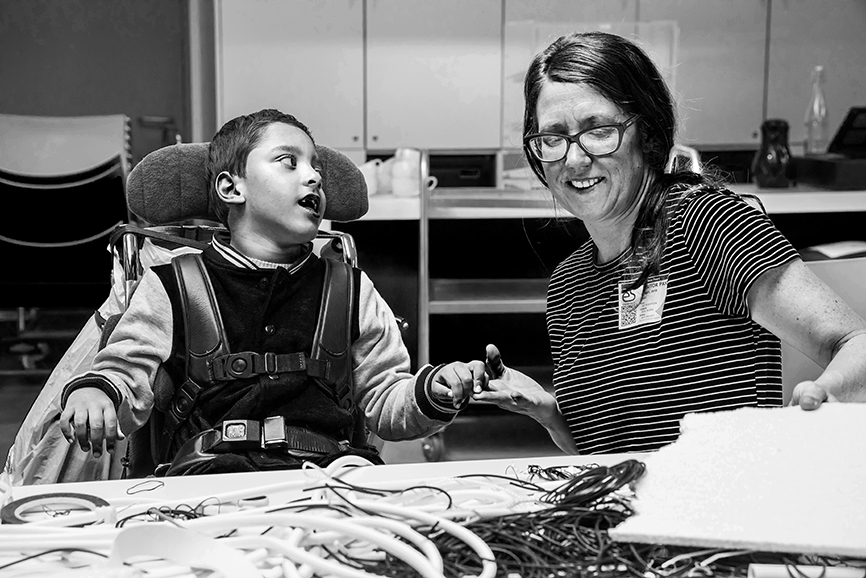
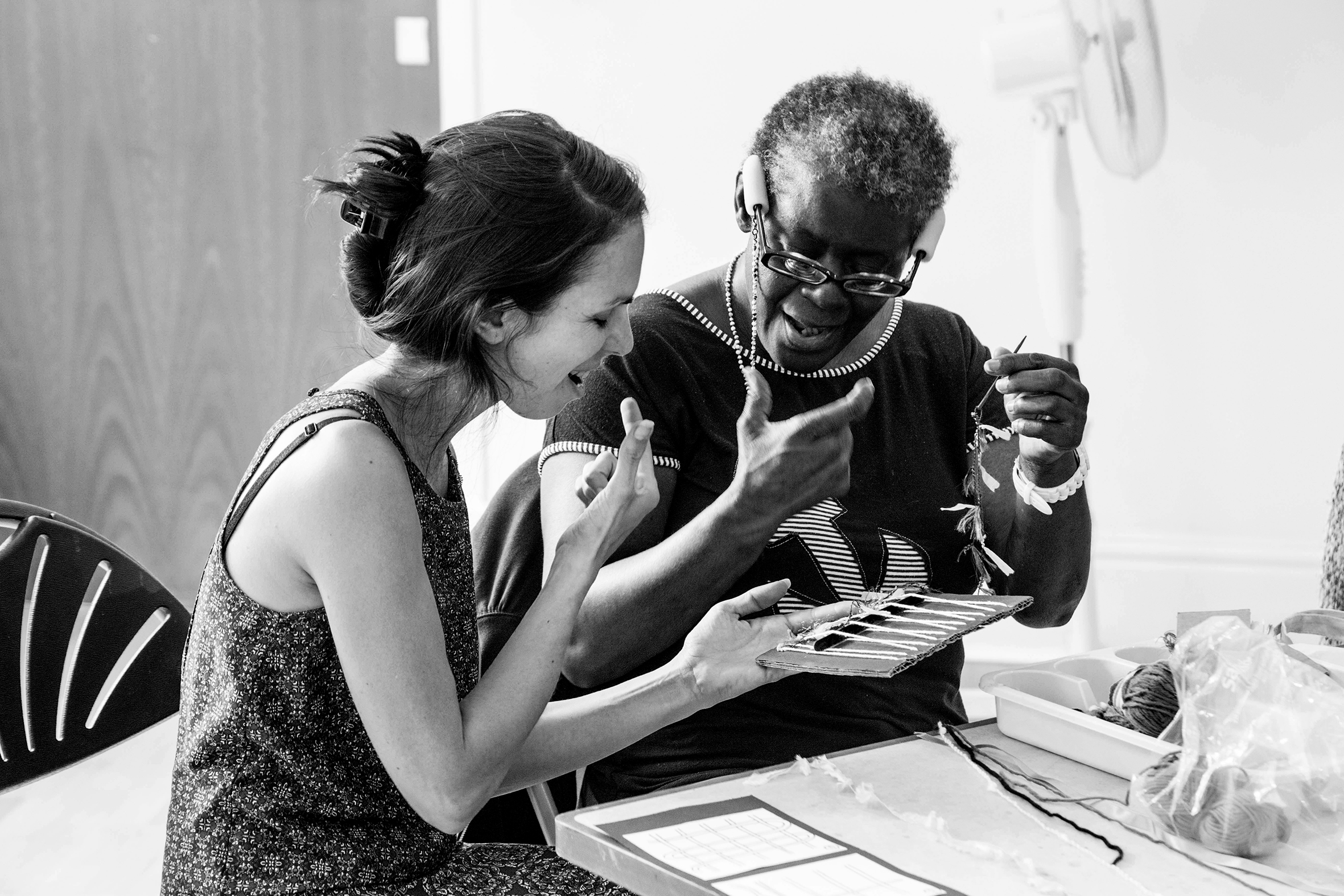
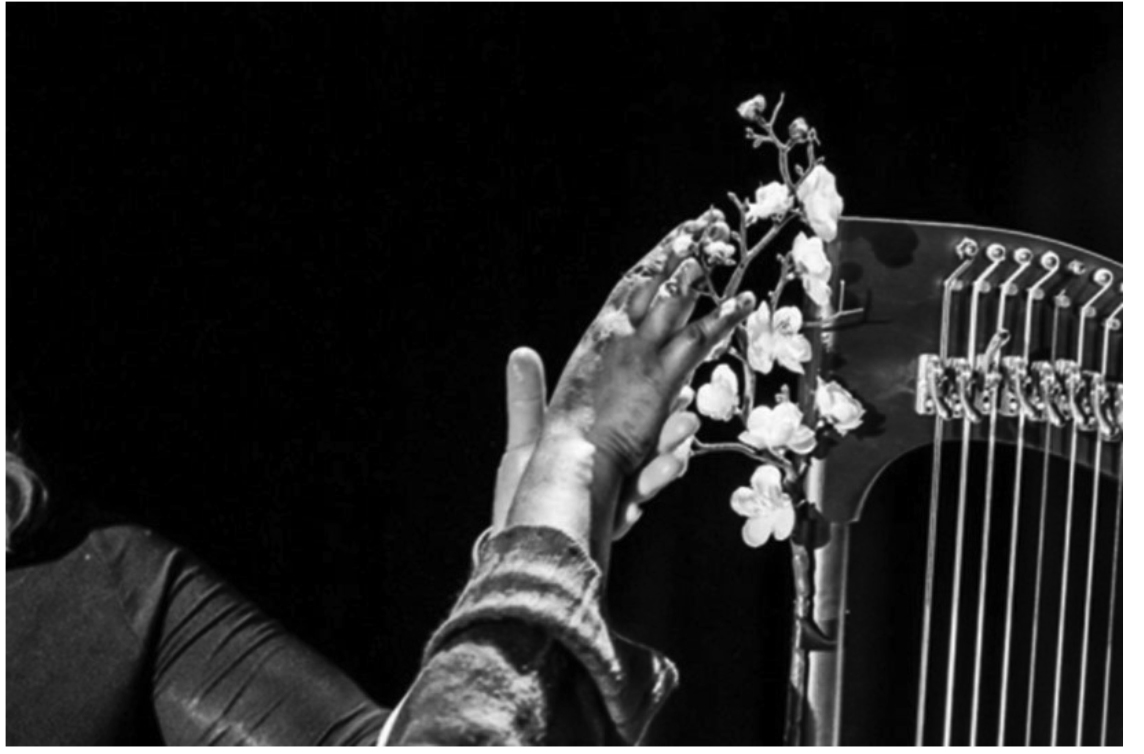
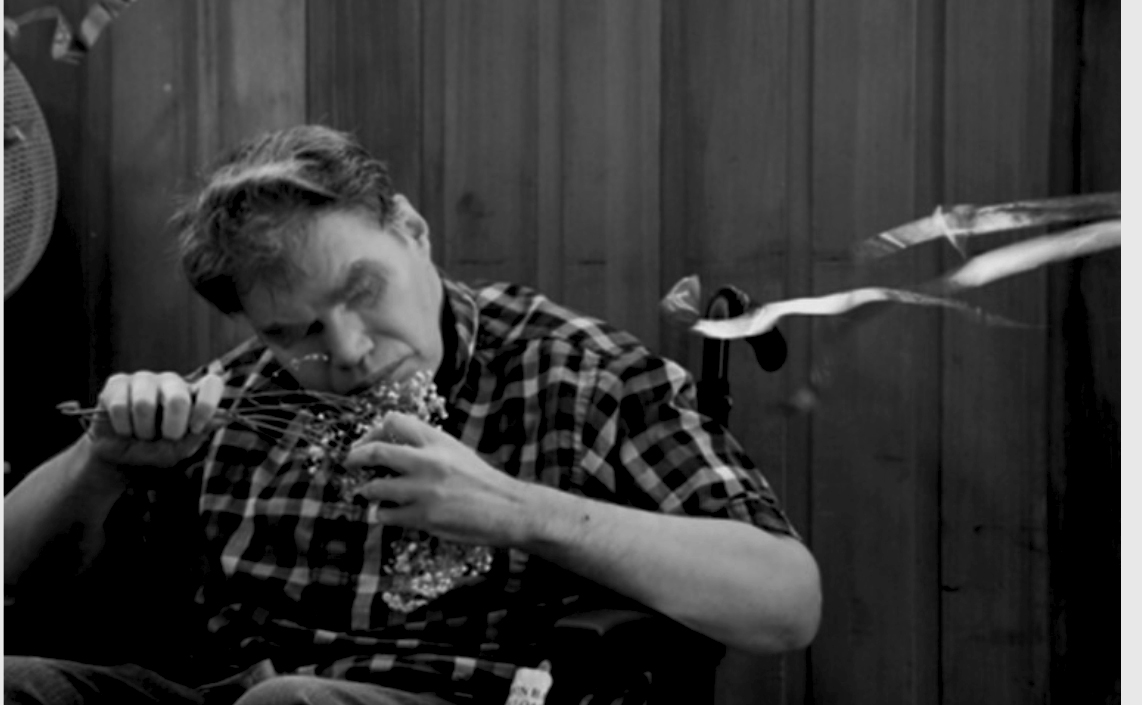
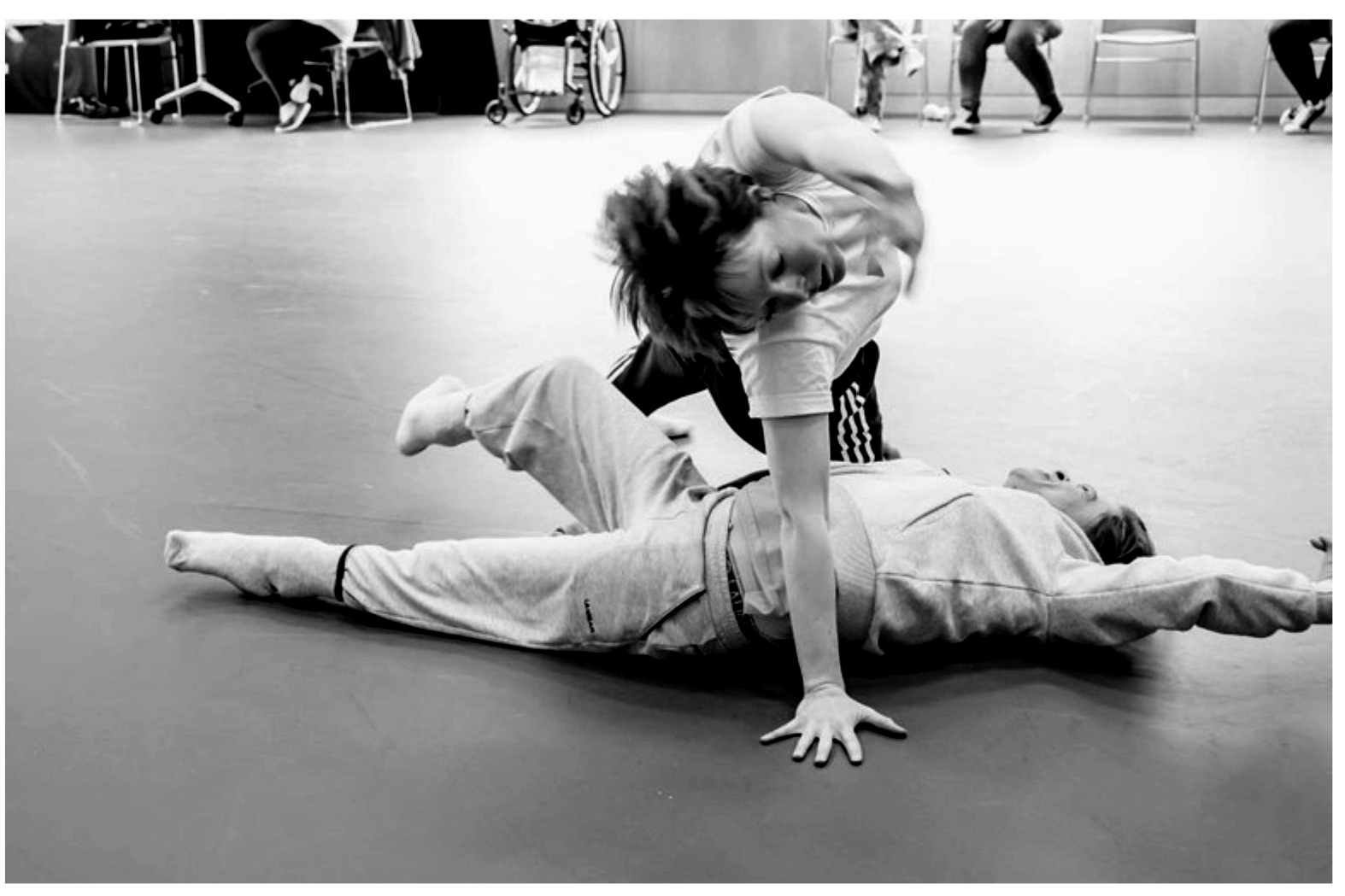
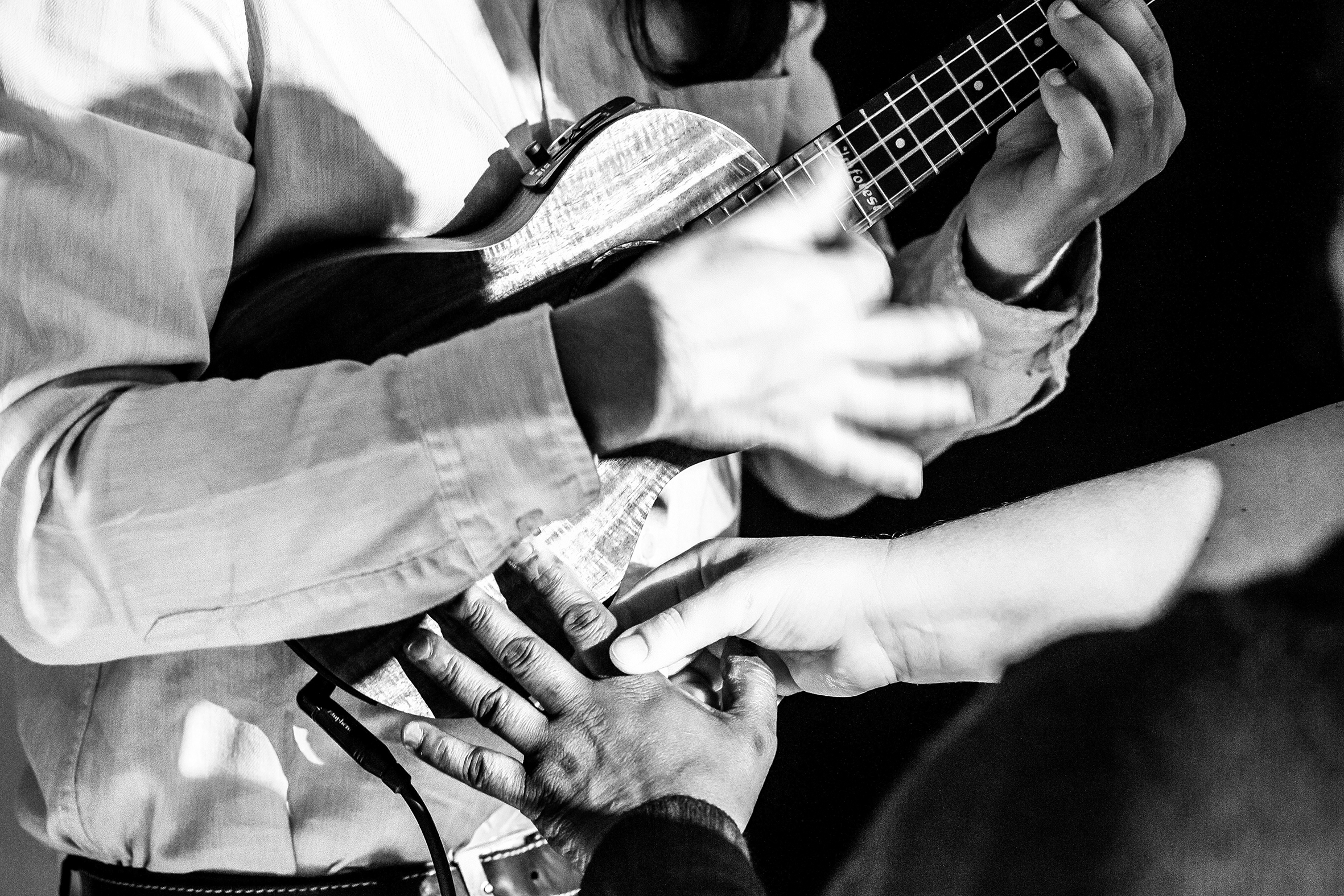
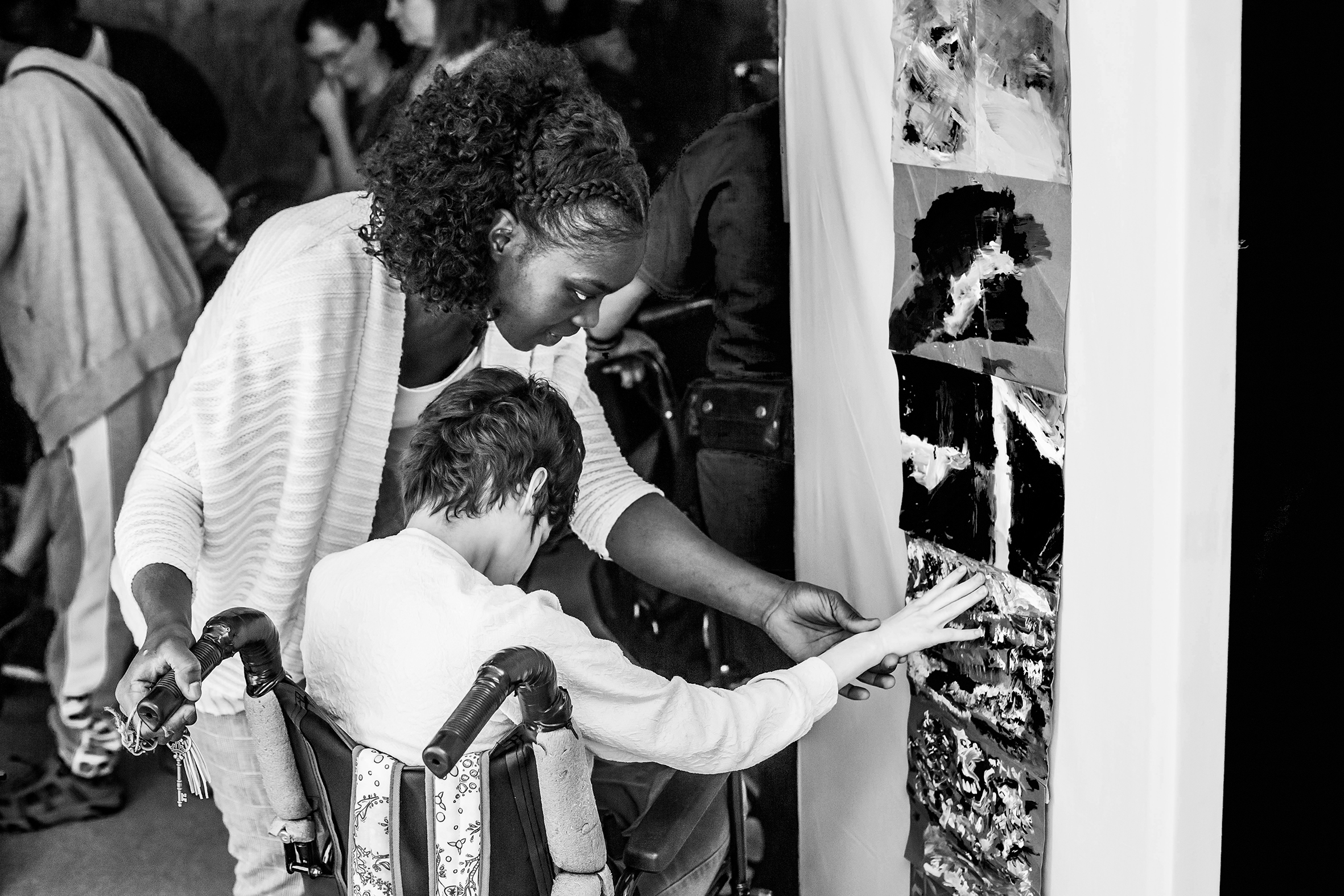
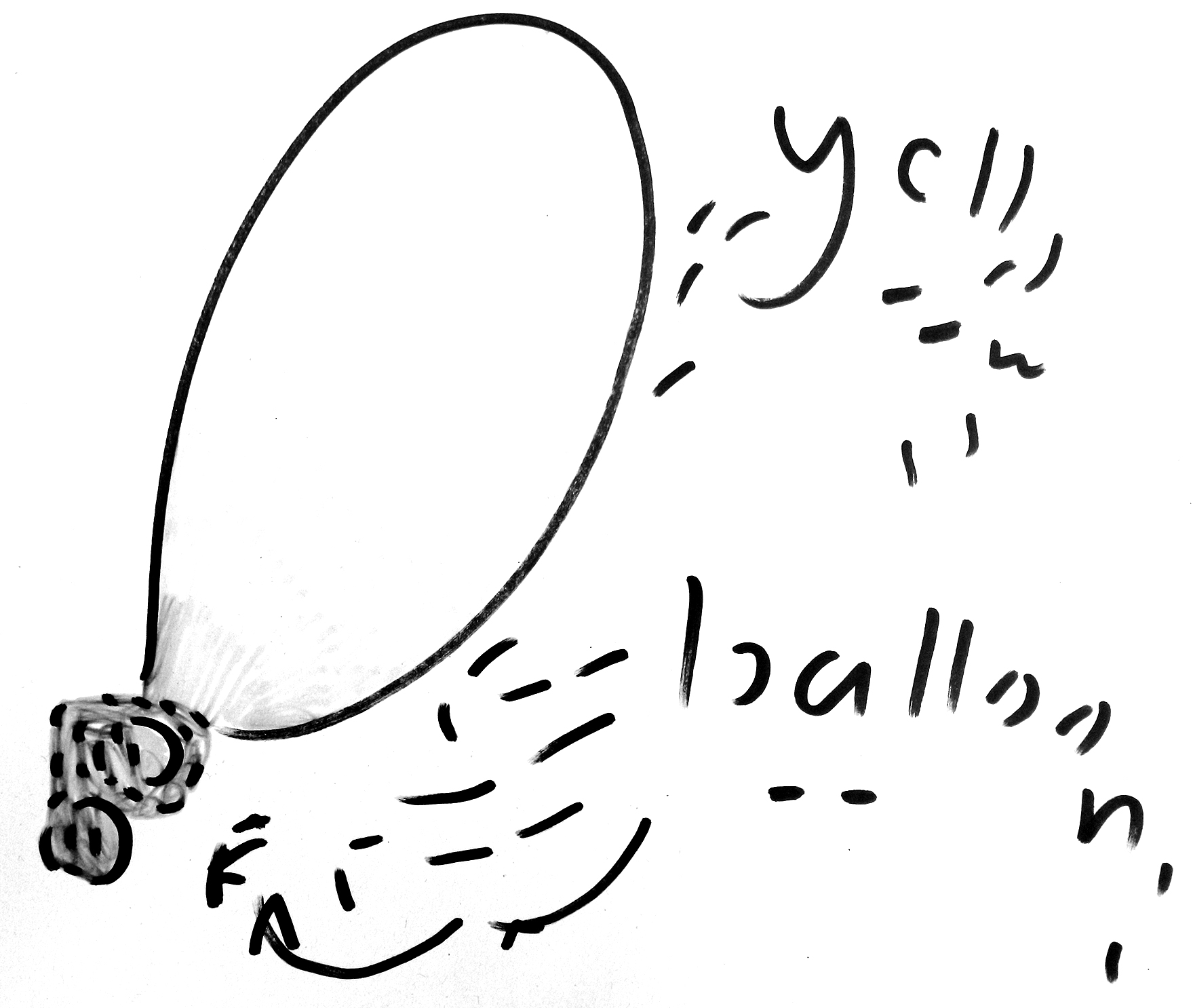
What is Sense Arts?
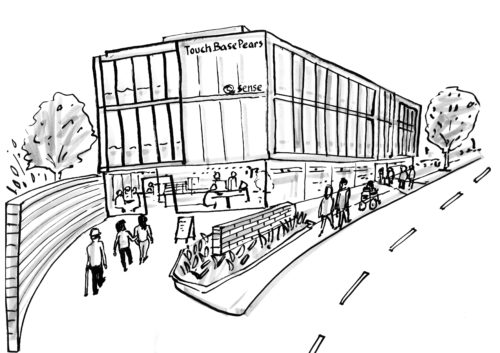
Sense Arts is based in Touchbase Pears, Birmingham. It was established in 2012 to create inclusive and enriching experiences for people with complex disabilities. We are multi-disciplinary but we focus on performance, music and visual arts. We are a national team with a strong presence in the Midlands. We give people the time and space to experience, make, learn and work together. We collaborate with organisations and artists to create more inclusive work.
We train artists, organisations and social care services to encourage greater cultural access for disabled people. We share what we learn and do through toolkits, events, exhibitions and digital media.
The team
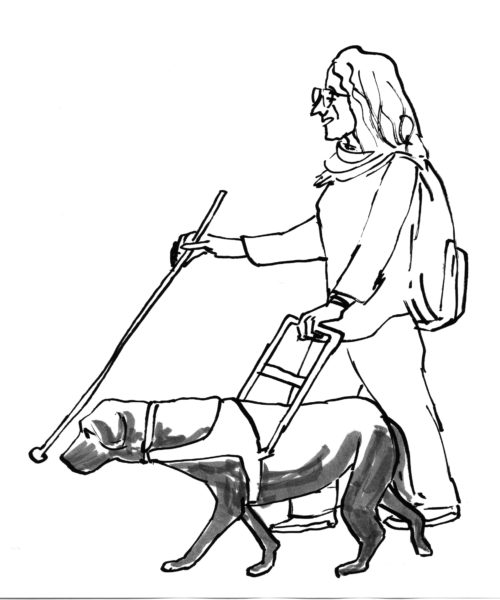
We are arts professionals with operational, practitioner, delivery, research, curation and arts management experience. The Head of Arts, Sport and Wellbeing, National Arts Manager and Arts and Wellbeing Coordinator are supported by a team of freelance artists and dedicated arts and massage specialists. Together, we run a busy arts and wellbeing programme, curate exhibitions and deliver flagship projects – most recently Sensibility in partnership with Midlands Arts Centre.
Art is a big part of what Sense has to offer as a social care provider. We understand its value in enabling people to express themselves and connect with the world around them.
We work with people of all ages and abilities and create new opportunities for disabled and non-disabled people to come together through the arts.
In 2017 we opened Sense TouchBase Pears a place for everyone to experience arts and culture, develop their creative practice and connect with others around them. It is a fully accessible venue and home to a theatre space, exhibition gallery, cafe and creative studios, where we deliver a rolling programme of arts, community workshops, commercial courses, events and exhibitions for the whole community.
Get in touch
If you want to develop your knowledge, learning, skills and experience to creatively engage with individuals with complex disabilities, you can connect with Sense Arts:
Email: [email protected]
Phone: 0121 415 2720
Over the last seven years
We have delivered over 5,000 creative sessions, over 7,000 people have participated in a Sense Arts project and 30,000 people have seen their work at public events across the country.
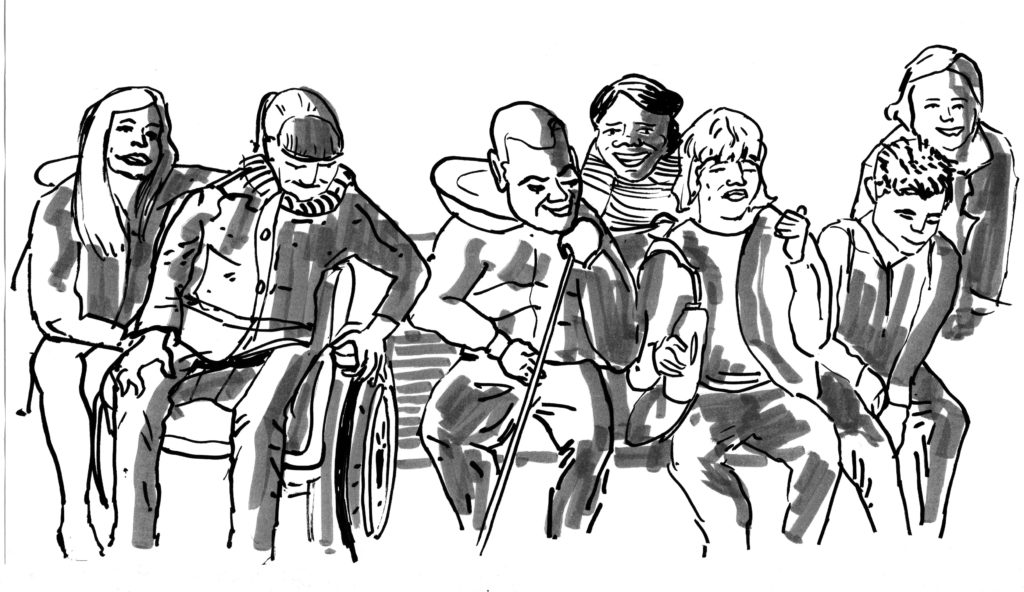
We have collaborated across the sector, with organisations including: Oily Cart, Epic Arts, New Movement Collective, InterACTION, Frozen Light, Lost & Found, Birmingham Repertory Theatre, Extant Theatre, Hippodrome Theatre, Royal Birmingham Society of Artists, The British Library, Victoria & Albert Museum & Studio Wayne McGregor.
We have employed artists including Lisa Simpson, Adam Benjamin, Amy Neilson Smith, Zoe Robertson, Alex McEwan, Saranjit Birdi, Lynn Cox & Justin Wiggan.
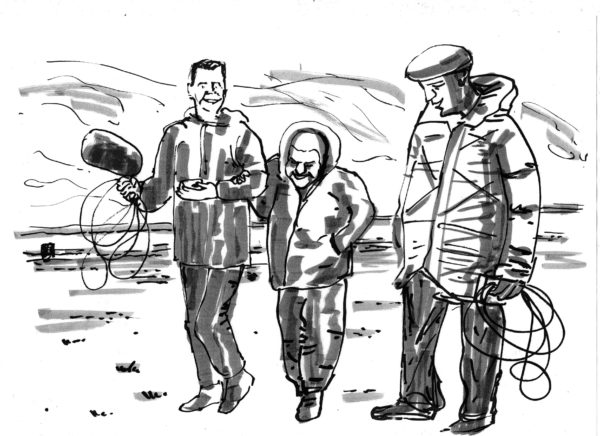
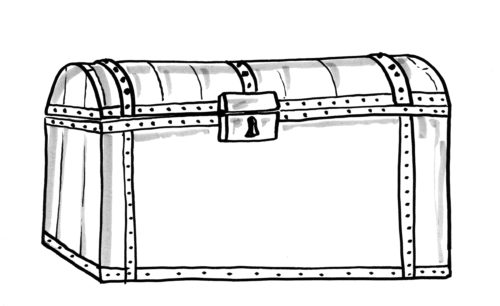
We have trained 230 Sense social care colleagues in collaborative art-making. We have trained 35 artists and staff from other organisations in disability awareness and inclusive art-making.
We have been awarded over £500,000 towards our programme from funders such as Esmee Fairbairn Foundation, Arts Council of England, National Foundation for Youth Music and the British Film Institute.
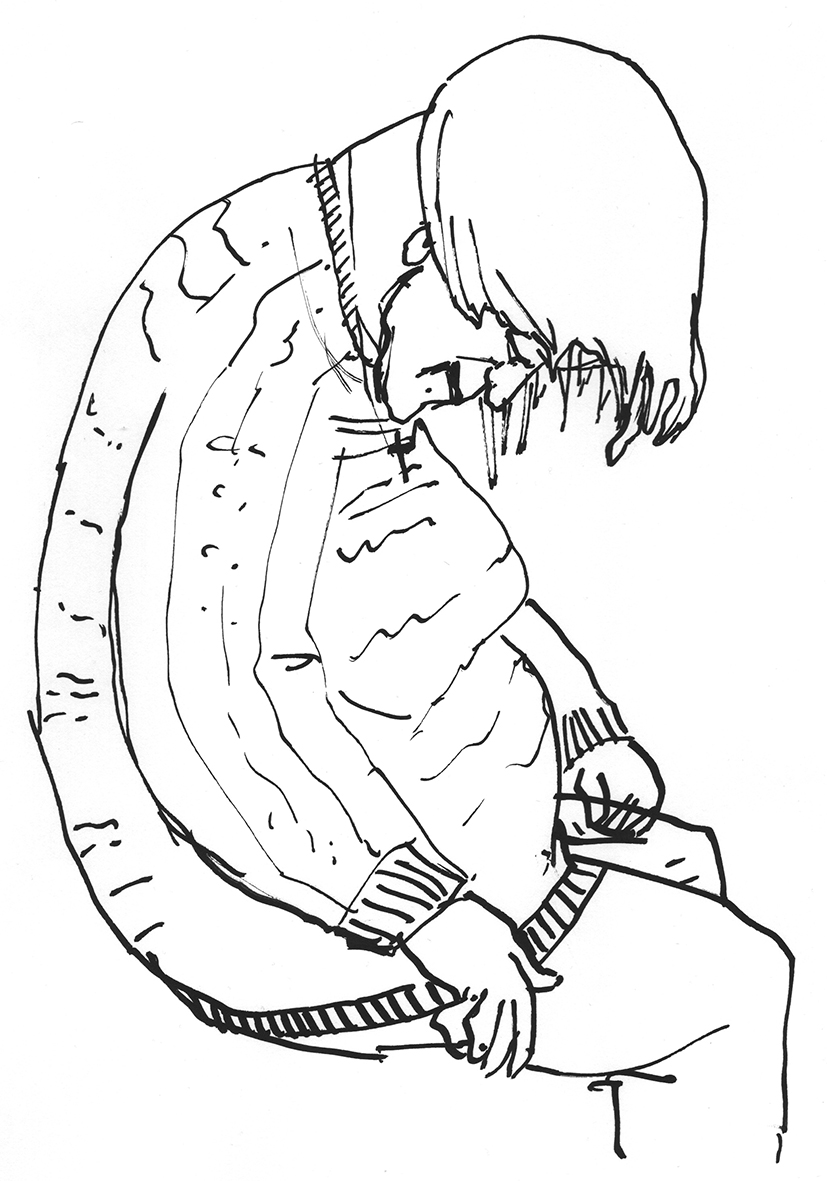
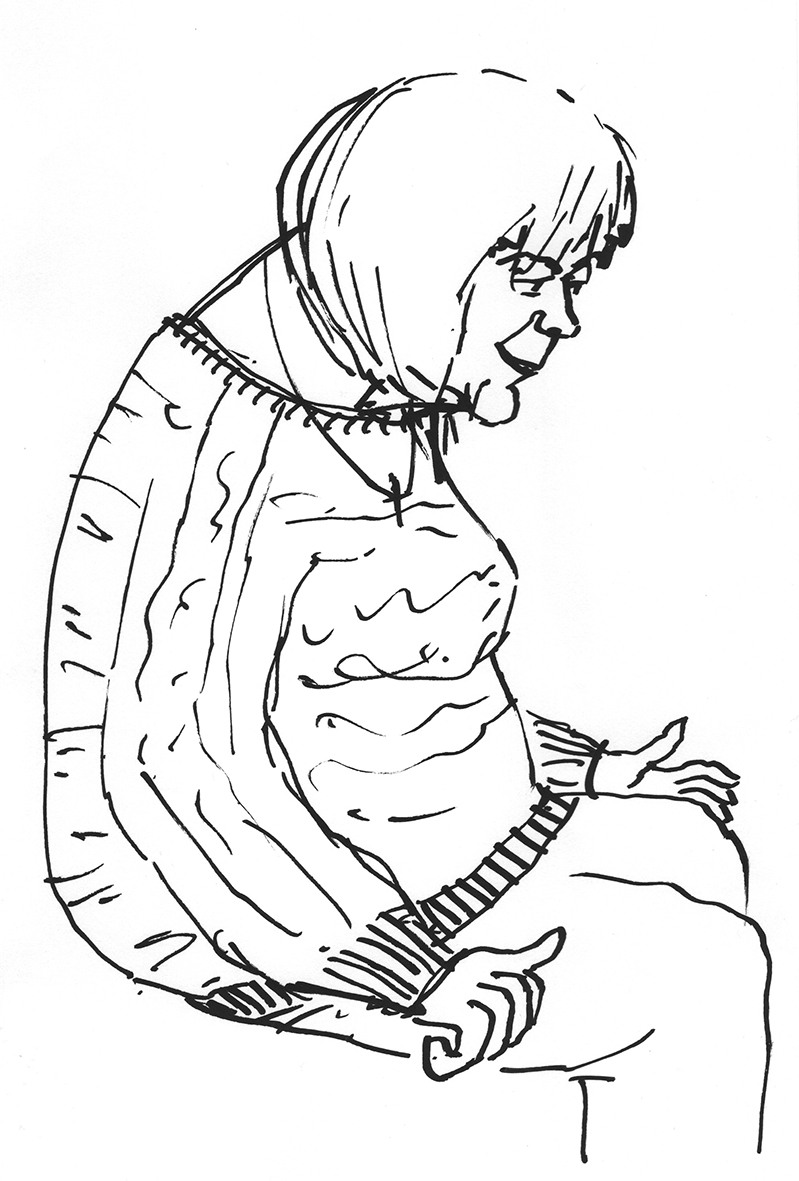
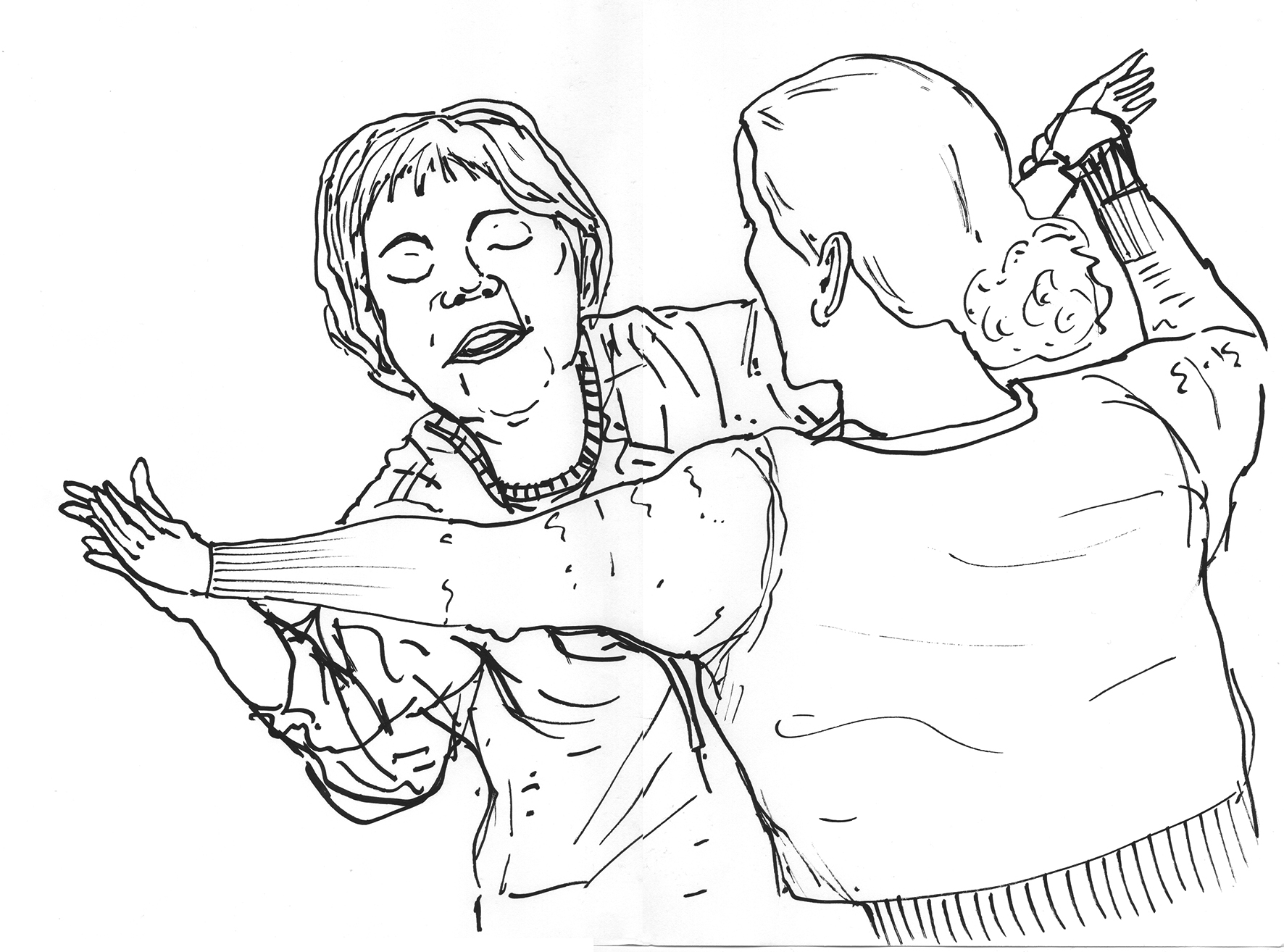
At the heart of what we do
Everything we do is inspired by the people we support. We create a more equal platform where everyone has the time and space to take part, in whatever way they want to.
- We are inclusive.
- We are genuine and non-tokenistic.
- We promote equality of access and opportunity.
- We are experimental.
- We are collaborative.
- We champion the best in inclusive arts practice.
- We are person-centred.
- We strive to create genuinely empowering experiences that change people’s lives.
We give people the opportunity to collaborate and learn with professional artists without having to navigate unapproachable venues or be intimidated by social or behavioural norms.
We take everyone as equally creative beings and celebrate all contributions. We challenge ourselves by questioning what art is, how it is performed, how it is understood, how it is valued and who it is for.
Our approach is firmly rooted in reflective practice. We use multiple methods to plan, observe and reflect on experiences. We use this knowledge to plan further creative explorations.
What we do
Sense Arts is a unique and diverse programme of inclusive arts, events and learning that puts people with complex disabilities at the forefront of artistic excellence.
Music
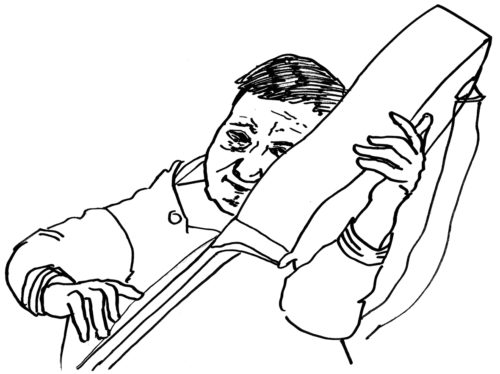
Our music programme fuses traditional music making and new technologies to open up access to everyone. We use technology to break down barriers and help people to make, feel and experience sound in new ways. Recent projects: Sounds of Us: Sensory Room concerts and Music is a Vibration.
Visual Arts
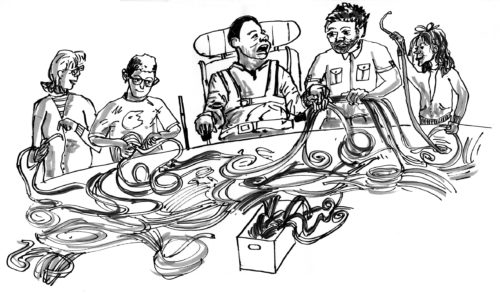
Our Visual Arts Programme combines personalised studio practice, with a mix of group sessions and one-to-one workshops. Artists and art-makers share experiences and learn from each other in a two-way exchange – sharing ideas and ways to access art making. Activities include photography, painting, sculpture, filmmaking, ceramics and textiles.
Performance
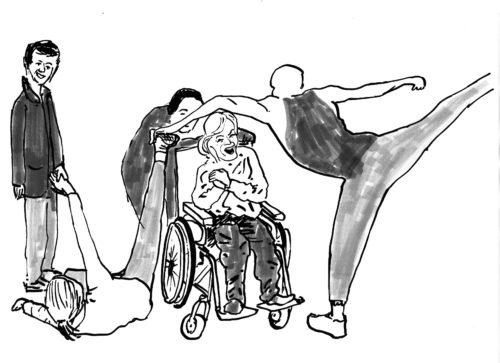
Our unique dance and theatre programme pushes aesthetic boundaries. Improvisation and devising are at the core of our in-depth working practices and everyone has access to, and ownership of, the artistic process. Recent projects: Screen Dance and Proprioceptional.
Courses
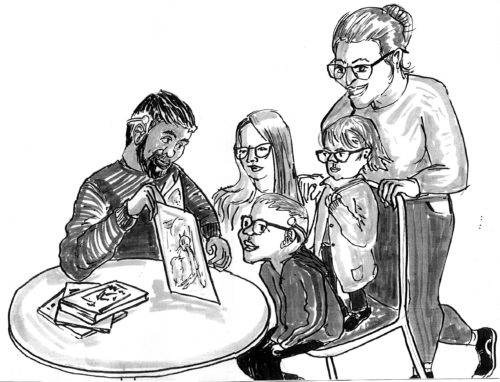
We offer a wide range of inclusive daytime, evening courses and workshops, available to people with complex disabilities and the wider community. These include pottery (starter, intermediate and advanced), drumming and percussion, photography, therapeutic horticulture, textiles and painting workshops, dance, theatre, sensory music gigs and visual arts.
The emphasis is on creating space for people to learn new skills in a supportive environment.
Exhibition Programme
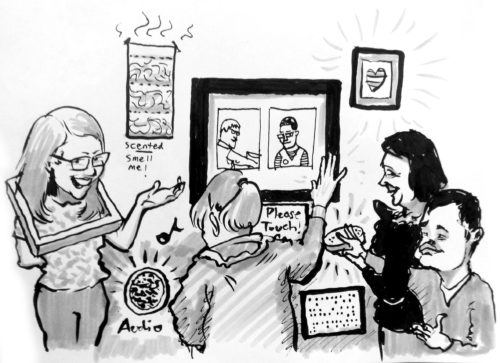
We programme exhibitions of new work created in our programmed sessions and courses. We also exhibit work of local artists, disabled artists and artists working in sensory mediums.
Our exhibition space is open to the public all year round.
Flagship events
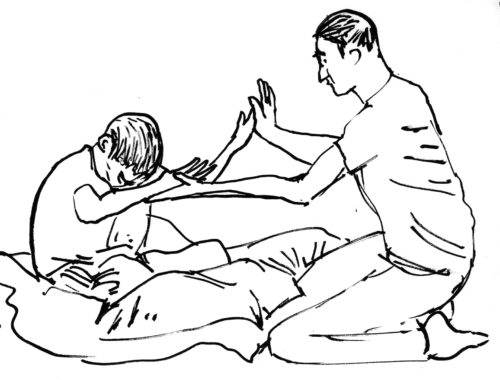
Sensibility Festival 2018 was a celebration of art-making through the senses and led by people with complex disabilities. Generously supported by the Arts Council of England and co-produced with the Midlands Art Centre (mac), Graeae Theatre and BitterSuite,
Sensibility laid the foundations for greater collaboration between art and social care. 60 people with complex disabilities created work for the festival which was seen by over 10,000 people at TouchBase Pears and mac. Over 70% of our guided audience identified as being deafblind and/or disabled.
“As human beings, we experience the world through our senses. We process the information we receive through sight, hearing, smell, touch and taste. Our interpretation of this information is individual, unique to each of us. Sensory arts help us to have a heightened, focused moment of interpretation. The role of the sensory artist is to consider the experience of the audience and their sensory experience of the artwork. This may result in the artwork existing in a new realm, which is undefined by previous parameters of art.”
Rebecca Randal, Sensibility Artist and long-term collaborator, InterACTION.
Paul
Paul is deafblind and has sensory processing disorder – he communicates using gesture or hand-under-hand signing and symbols. Since coming to Sense Arts sessions Paul has found a new passion for music.
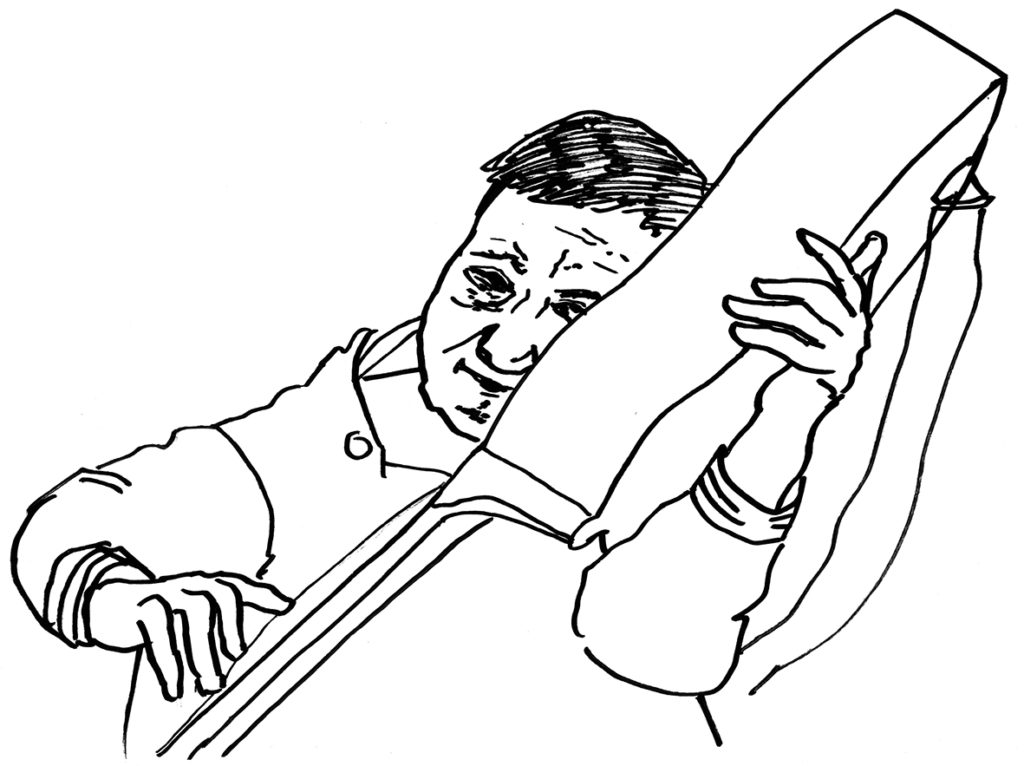
He brings the guitar close to him to feel the vibrations and experiments with different ways of making sounds. He’s a very creative person and would love to play music all day long.
Sometimes, like everyone else, he gets overwhelmed but on the days he experiences music, he comes home feeling relaxed, happy and smiling.
Recently, Paul worked with artist Justin Wiggan. Together they explored creating ‘sonic sound art’ which really struck a chord with Paul because he was able to engage with sound in a way he hadn’t before. The workshops gave him the chance to experiment and play with different ideas, technology and materials – without any judgement or preconceived ideas about what sounds could be made. This gave him the time and space to make creative decisions for himself and share his work with his peers.
Music is very powerful for Paul; it gives him a channel for his creative energy and allows him to connect with others around him.
Creating the Strategy
Our strategy is informed by our conversations with Sense colleagues, artists, industry peers and key stakeholders as well as wider research on sector priorities and learning.
“Inclusivity of outlook and practice creates a better, richer and more dynamic arts sector.”
Arts Council of England
“We believe the arts will contribute to a culture within health services that is more supportive, empowering, personal, and humane.”
All Party Parliamentary Group on Arts, Health & Wellbeing
The arts have a role in enabling people to live full and meaningful lives. The best care providers are ‘flexible and responsive to people’s individual needs and preferences, finding creative ways to enable people to live a full life’.
Care Quality Commission
“Public funding must benefit all the public. There are profound social, moral and economic reasons why we must ensure that the work we invest in is reflective of the world that we live in.”
Arts Council of England
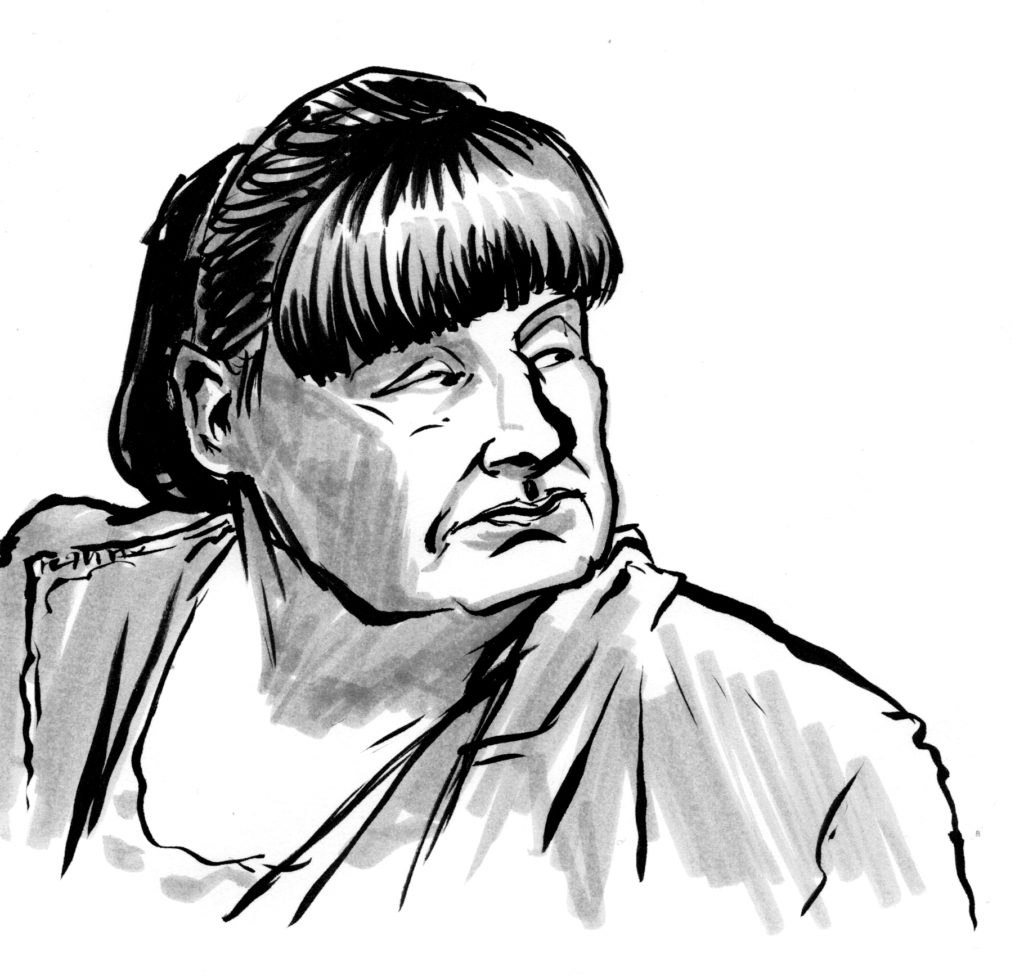
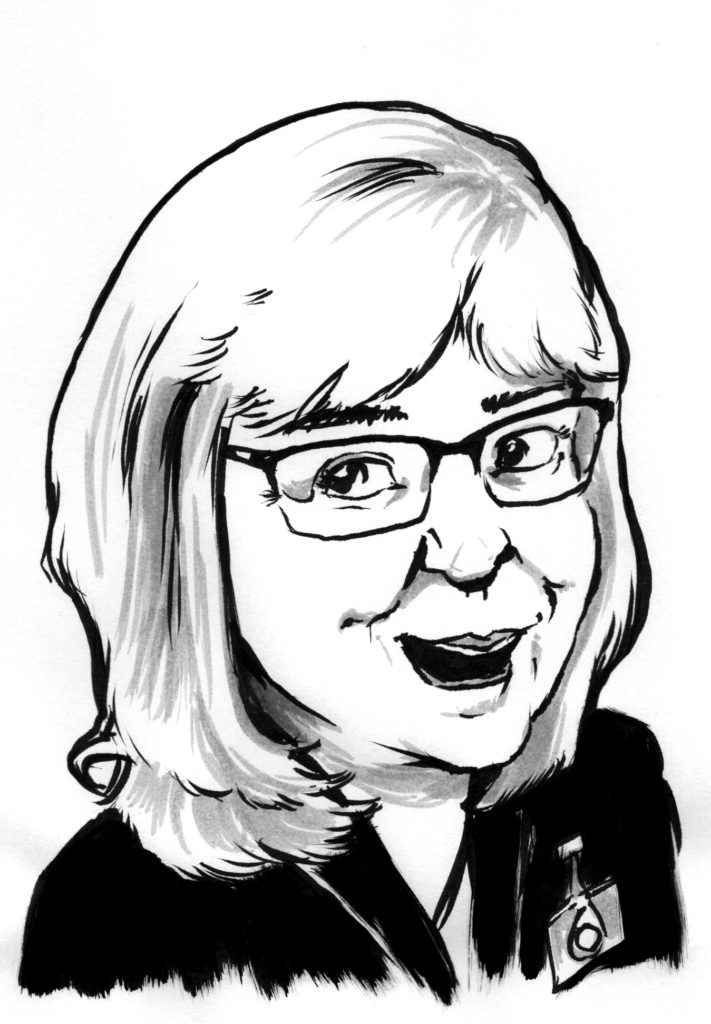
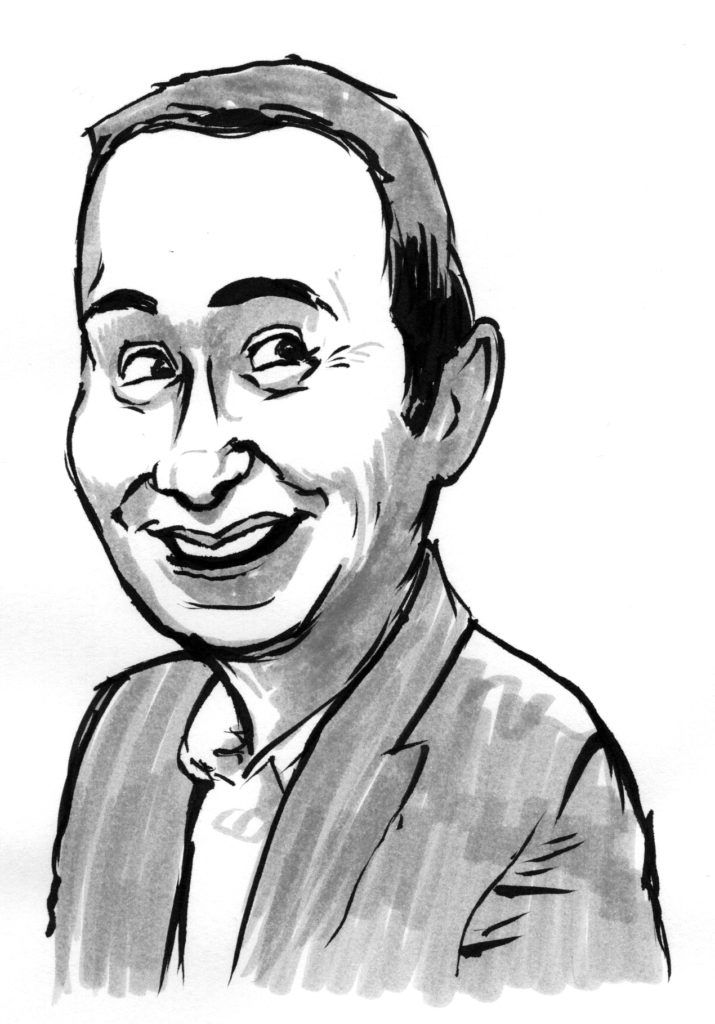
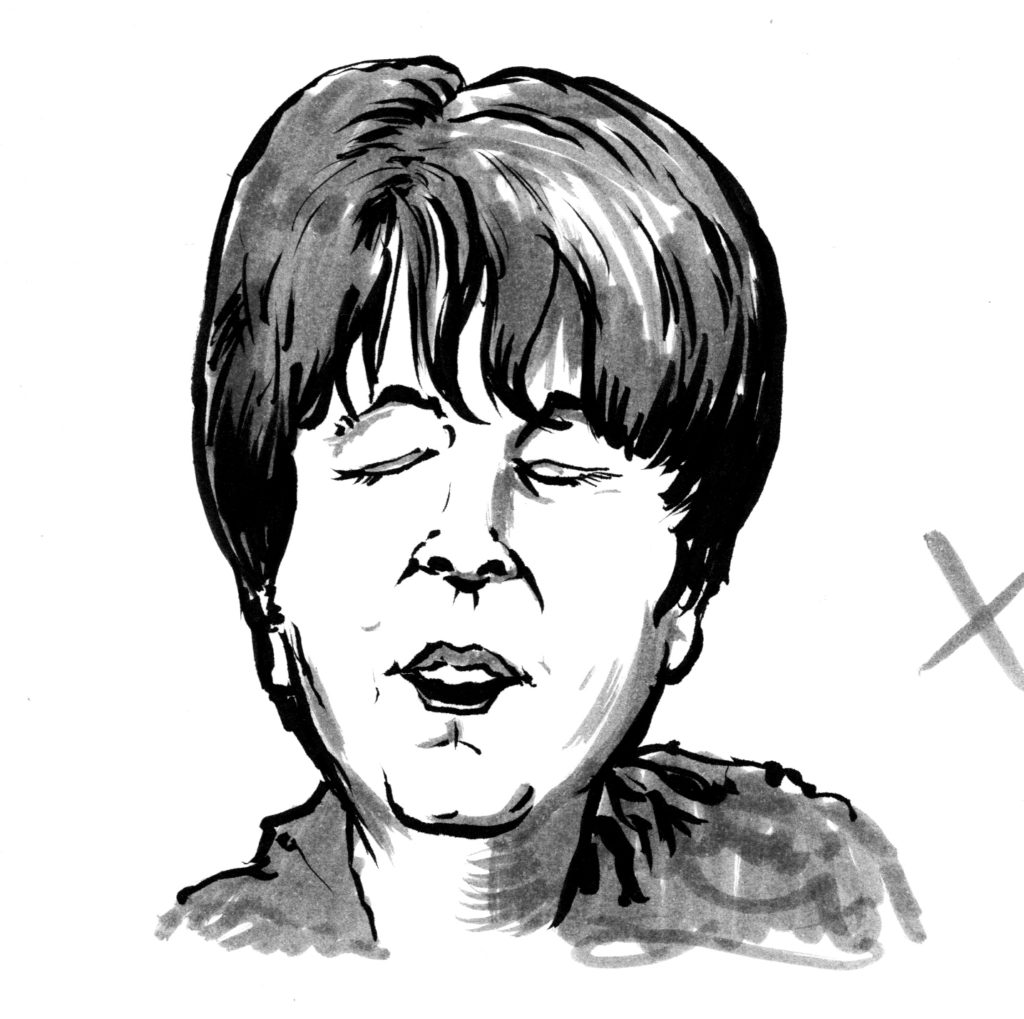
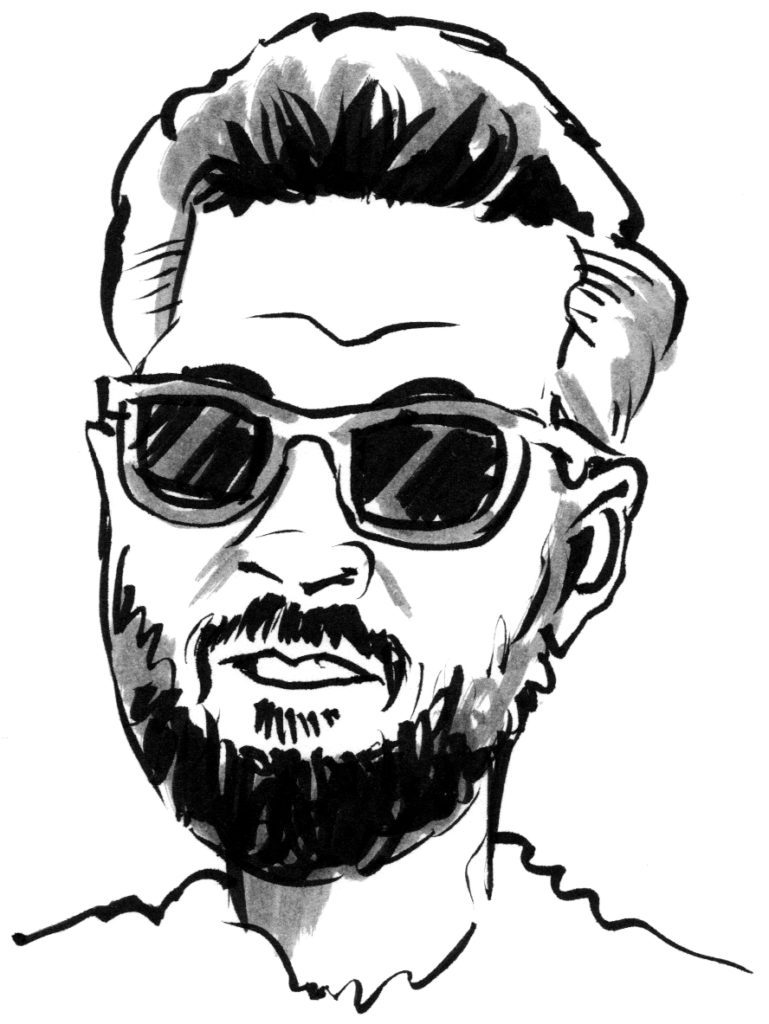
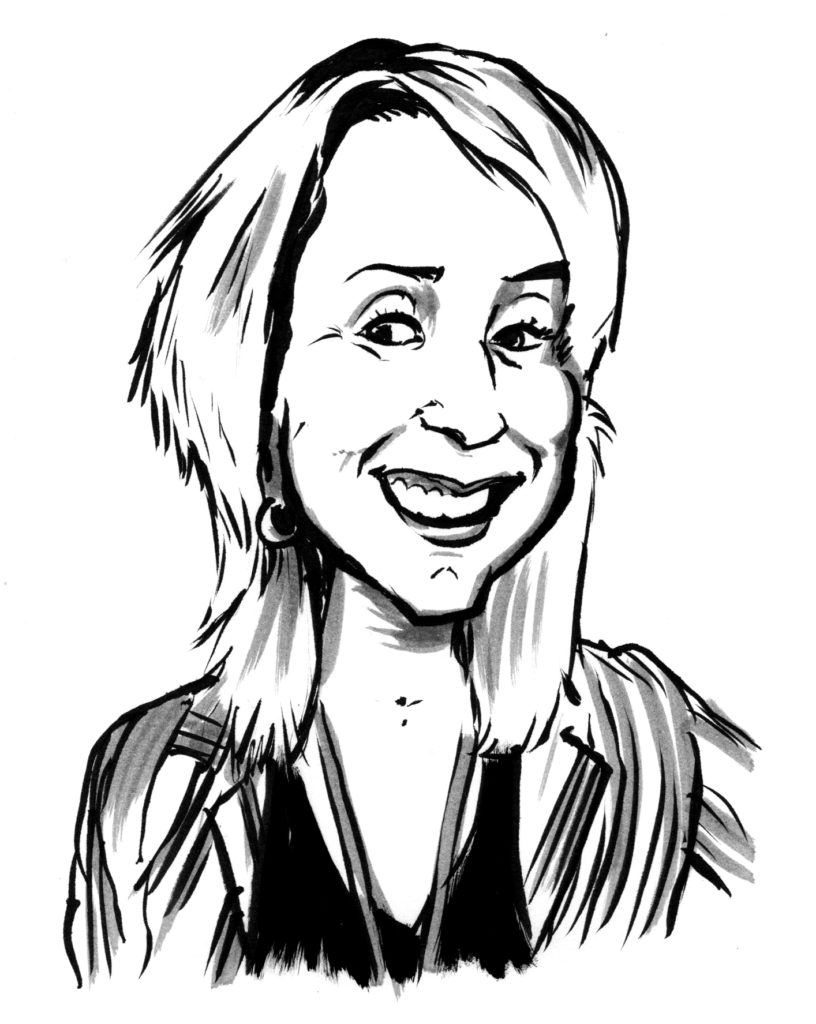
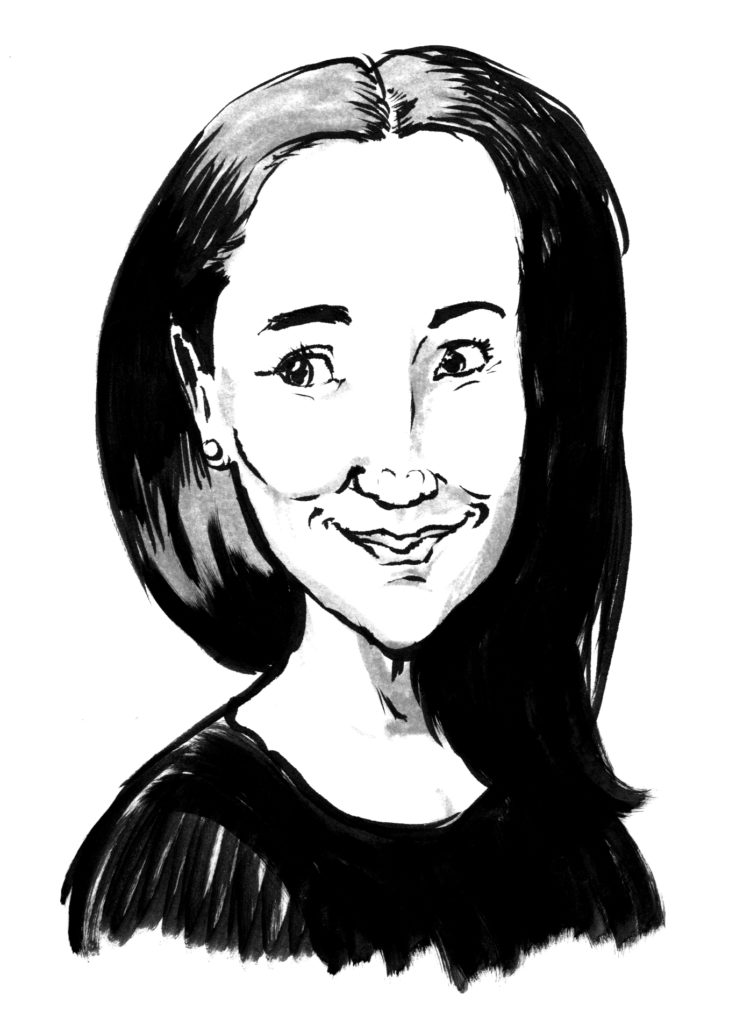
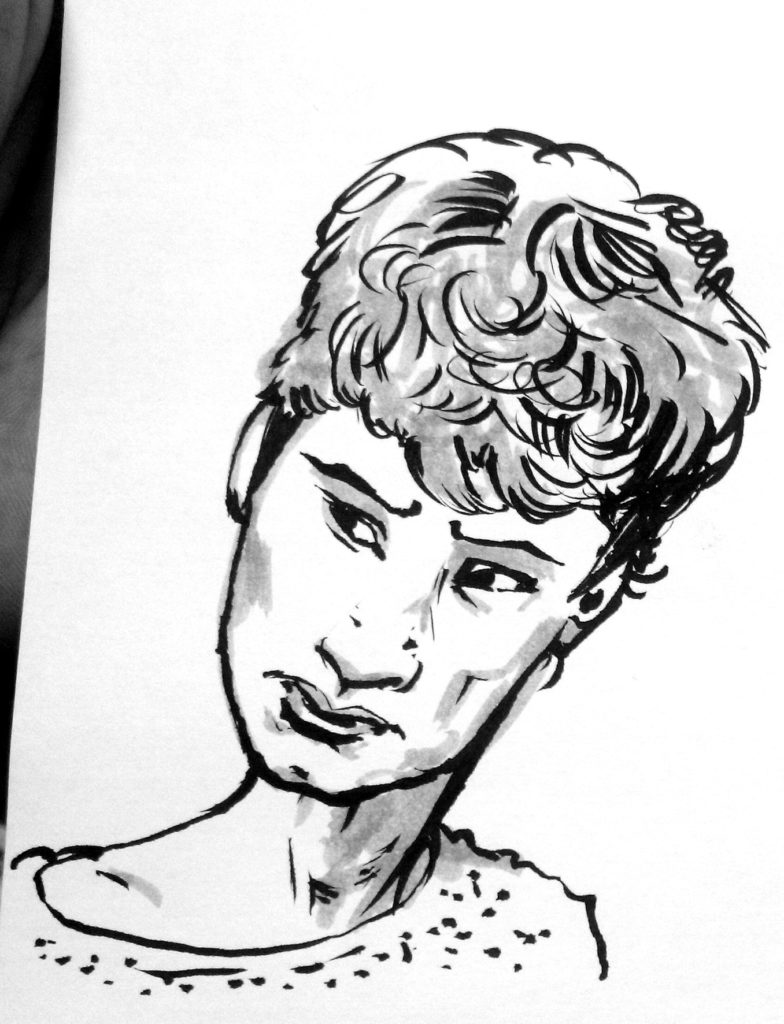
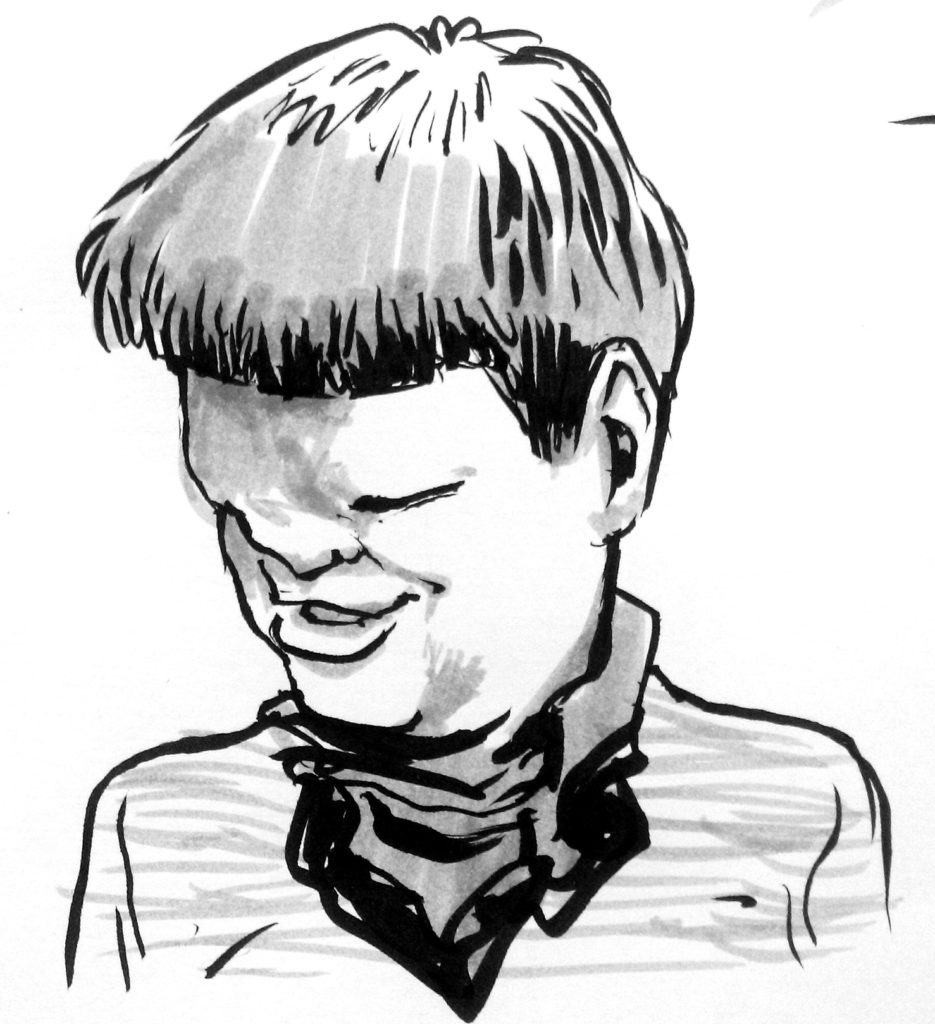
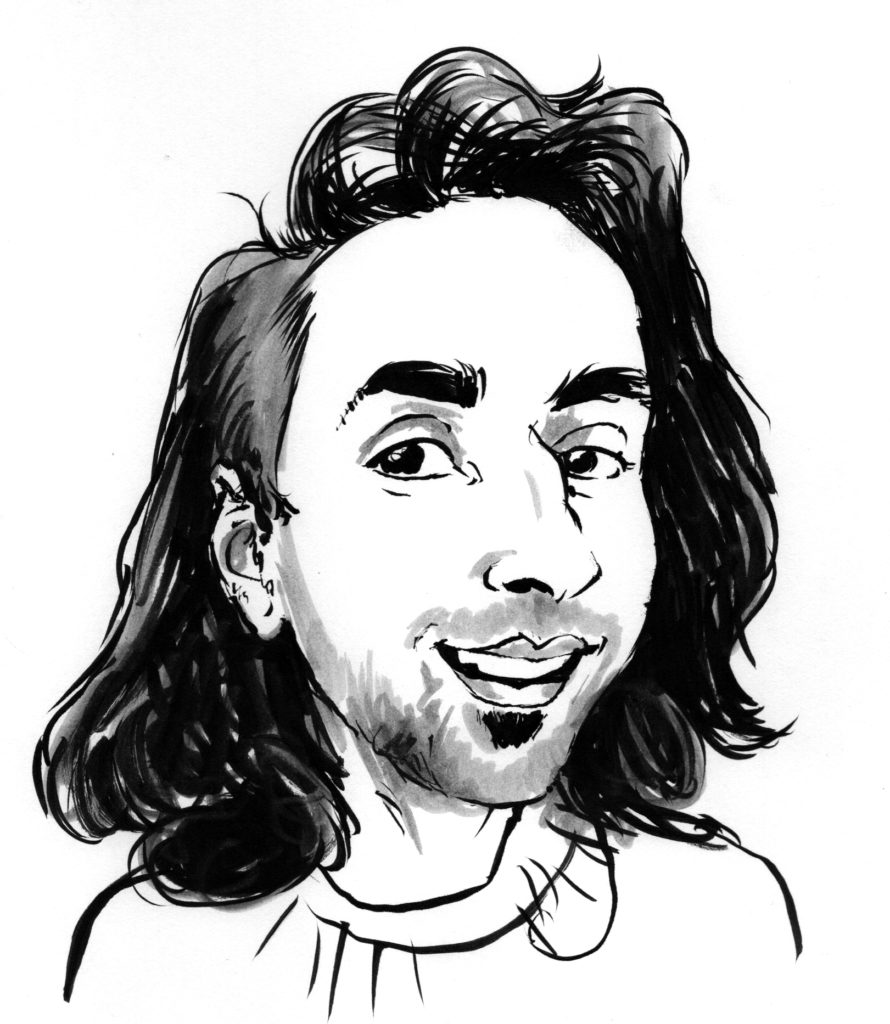
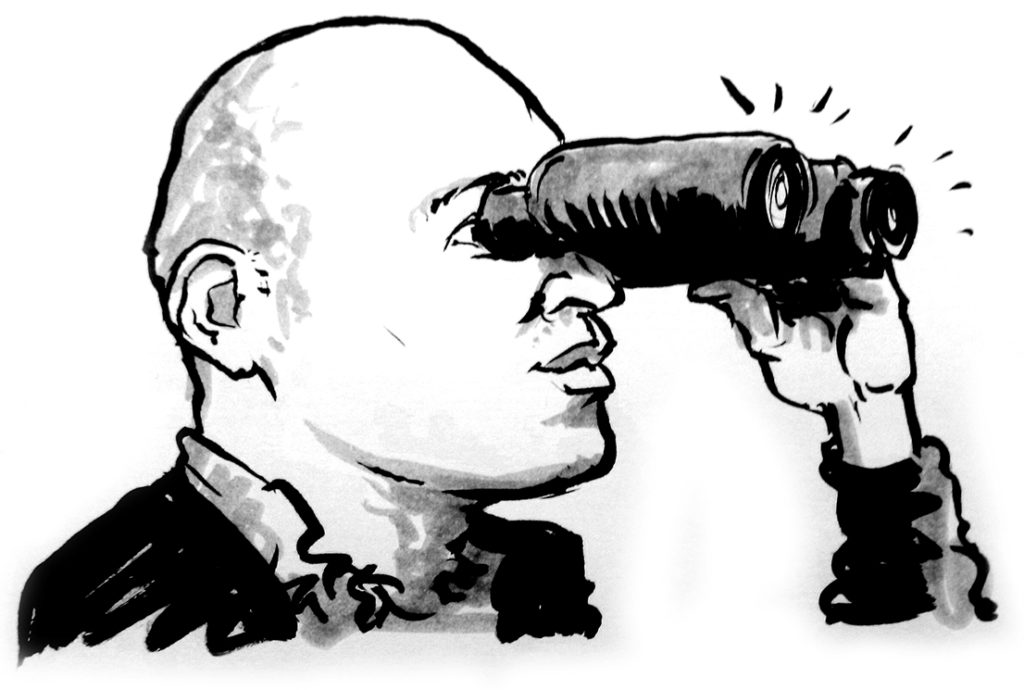
Many disabled people rely on others to access art. To increase participation we must also increase encouragement and support for the arts amongst their family & carers.
Just 4% of staff working in Arts Council funded National Portfolio Organisations (NPOs) self-define as disabled.
The number of people living with complex disabilities is increasing as more children are born with complex conditions and people live longer.
Participatory art sessions help animate and personalise care environments, helping to improve residents’ wellbeing and the quality of care they receive.
“We want to introduce more opportunities for people to express themselves creatively and pioneer new inclusive art practice with positive outcomes.”
Richard Kramer, CEO of Sense
“Sense Arts staff are experts in the work they do. They understand the general public and disability arts and bring it together in the form of inclusive arts.”
Maria Horton, Group Director of Operations
Disabled people are often disempowered or excluded from arts training, so being able to create their own art, in environments controlled by themselves, is critical if they are to develop as creative producers, and compete with artists in the mainstream.
Sustaining expertise in a freelance workforce is one of the greatest threats to delivering an inclusive programme.
Inclusive Consultation
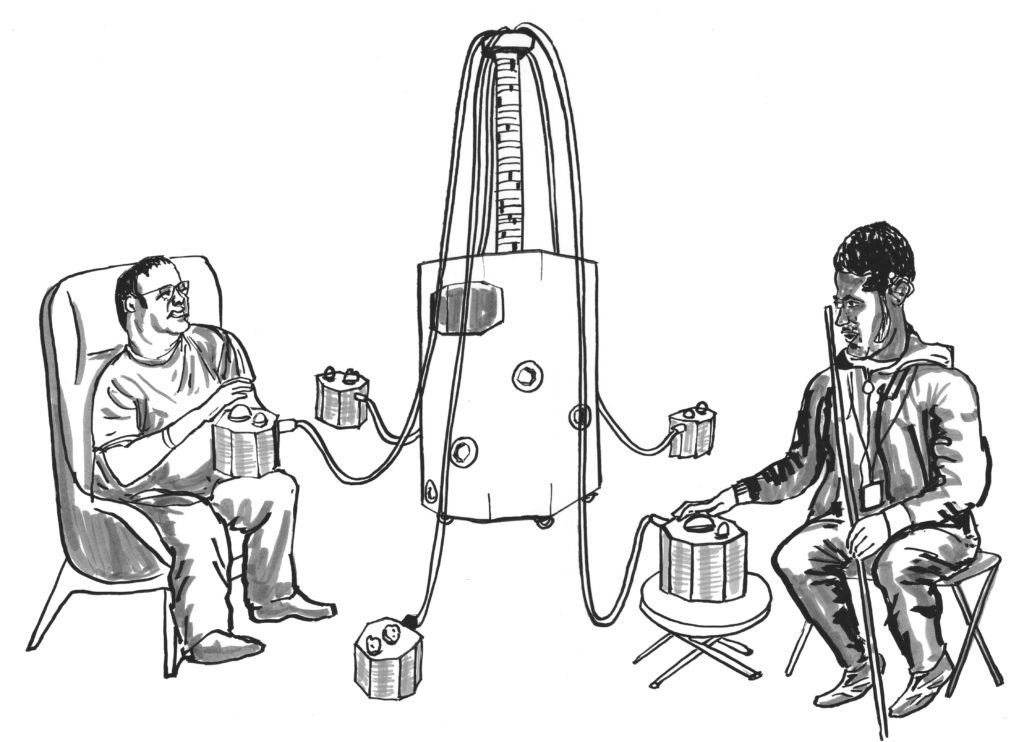
It was essential that people with complex disabilities had meaningful input into our strategy. We hosted a 2-day inclusive consultation event featuring an interactive installation chosen for its universal accessibility.
The Daance Maast installation by Swoomptheeng is a multiplayer, sensory music writing and beat making machine! During the event, people interacted with the installation by pressing buttons to trigger different sounds and vibrations. Together they created a spontaneous piece of artwork and a joyful musical connection with each other. For greater access, some art-makers wore Subpac vests across their body to feel the sounds being made.
As part of this process we collaborated with Zoe Robertson to help capture people’s experiences of their engagement. This included collaborative mark making in the moment and an installation created afterwards reflecting on the observations of the consultation.
We grounded the consultation in questions such as, ‘are people having fun?’ ‘Are people finding their own way of engaging?’ and ‘do people want more of this?’ This approach, and the artwork made, helps us better understand the types of creative experience that work and what people with complex disabilities want.

Our approach to the consultation was about providing an inclusive space to experience of art-making in the moment and valuing each contribution.
The sculpture Space to be Different was created in response to the inclusive consultation.
- We want to bring arts and social care closer together.
- We want to support disabled artists and art-makers to be leaders in their field.
- We want the art and cultural sector to champion access for people with complex disabilities in their work and venues
- We want more people to know about the benefits of inclusive arts on health and wellbeing
- We want to train artists and the social care sector to create a network of practice that builds a more sustainable skills base for inclusion and arts
Space to be Different is informed by our consultation and research. It will guide us on our mission to make the arts accessible to all, so that everyone, no matter how complex their disability, can benefit from connecting with culture and creativity.
We have identified the following priorities and enabling goals needed to help us achieve this.
Priorities for 2019 – 2022
People
Supporting people in their creative development.
Training, mentoring and nurturing disabled and non-disabled artists, social care professionals and art-makers.
Programme
Making more art with more people
Growing our inclusive arts programme so we can connect with more people across the country.
Places
Increasing access to culture
Working with organisations and venues to create places that are engaging, relevant and more accessible for people with complex disabilities.
Profile
Sharing the impact of inclusive arts
Driving more visibility, ambition, collaboration and commitment to inclusive arts across the arts, social care and wider cultural and educational sectors
People
We will create a national network of inclusive artists through a new Associate Artists Programme. This will include in-depth training, mentoring and development time for artists as well as practical experience in designing and delivering a diverse inclusive programme.
We will provide more training for our national support staff in collaborative art-making so that they feel more confident working creatively and art becomes a part of the everyday across Sense.
We will extend our training offer to the wider social care sector so more organisations have the tools they need to work with their local cultural landscape and embed this approach in their social care practice.
We will create more employment opportunities for disabled artists as facilitators on our programme.
We will identify emerging disabled artists with complex disabilities and provide professional development opportunities for them in partnership with an artist mentor.
We will create more commissioning opportunities for disabled and non-disabled inclusive artists.
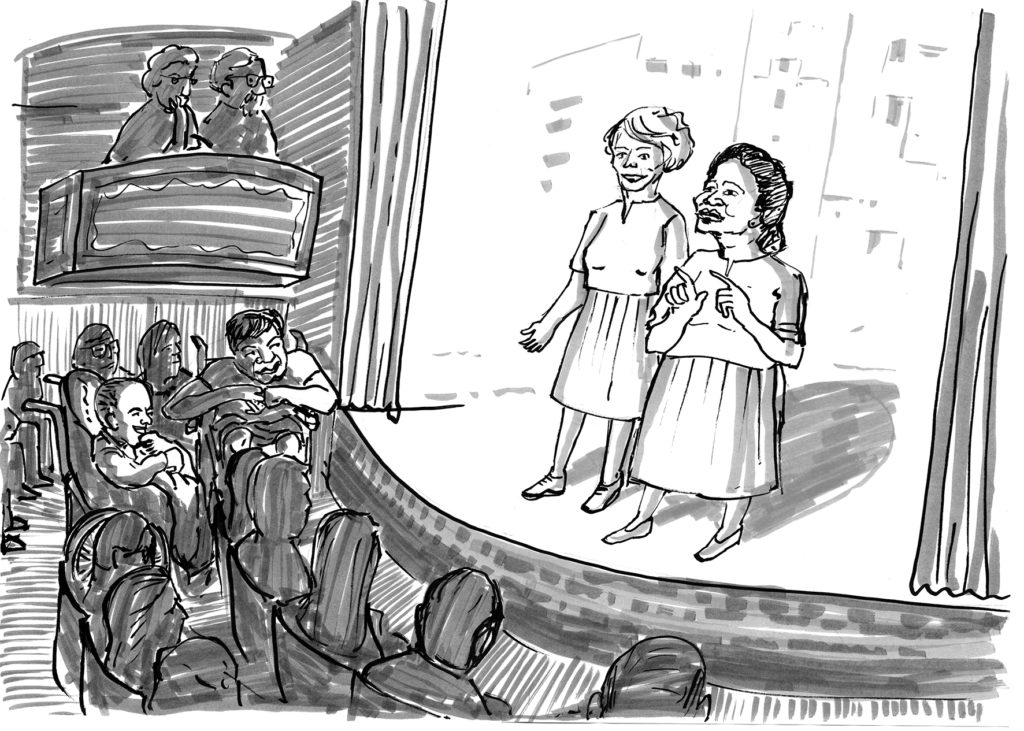
Programme
We will expand our national reach, in conjunction with the Associate Artist Programme, so more people with complex disabilities can access inclusive arts.
We will create a sustainable business model for our Sense TouchBase Pears programme that attracts new audiences and enables us to grow our programme of weekly sessions, events and exhibitions.
We will continue to focus on performance, music and visual arts but deepen our expertise and practice through Research and Development and Artists in Residency.
We will bring more disabled and non-disabled people together through mutual interests and the joys of art.
We will identify new audiences for our programme and respond to their needs by offering an extended range of opportunities.
We will address high levels of loneliness reported by people with disabilities by creating more opportunities for social connectedness, sharing and collaboration.

Places
We will support the art sector, including National Portfolio Organisations, to think differently about access and inclusion so that people with complex disabilities can benefit from the public investment in culture.
We will train, advise and support the health and social care sector to embed creativity in their models of care to improve outcomes for people.
We will invest further in Sense TouchBase Pears to expand our current art, performance and music space, enabling us to grow our programme and create more space for disabled and non-disabled artists to work together.
We will expand on the concept of ‘disability friendly’ organisations by providing advice and inclusion audits that focus on creating welcoming spaces for people with complex disabilities as art-makers and audiences.
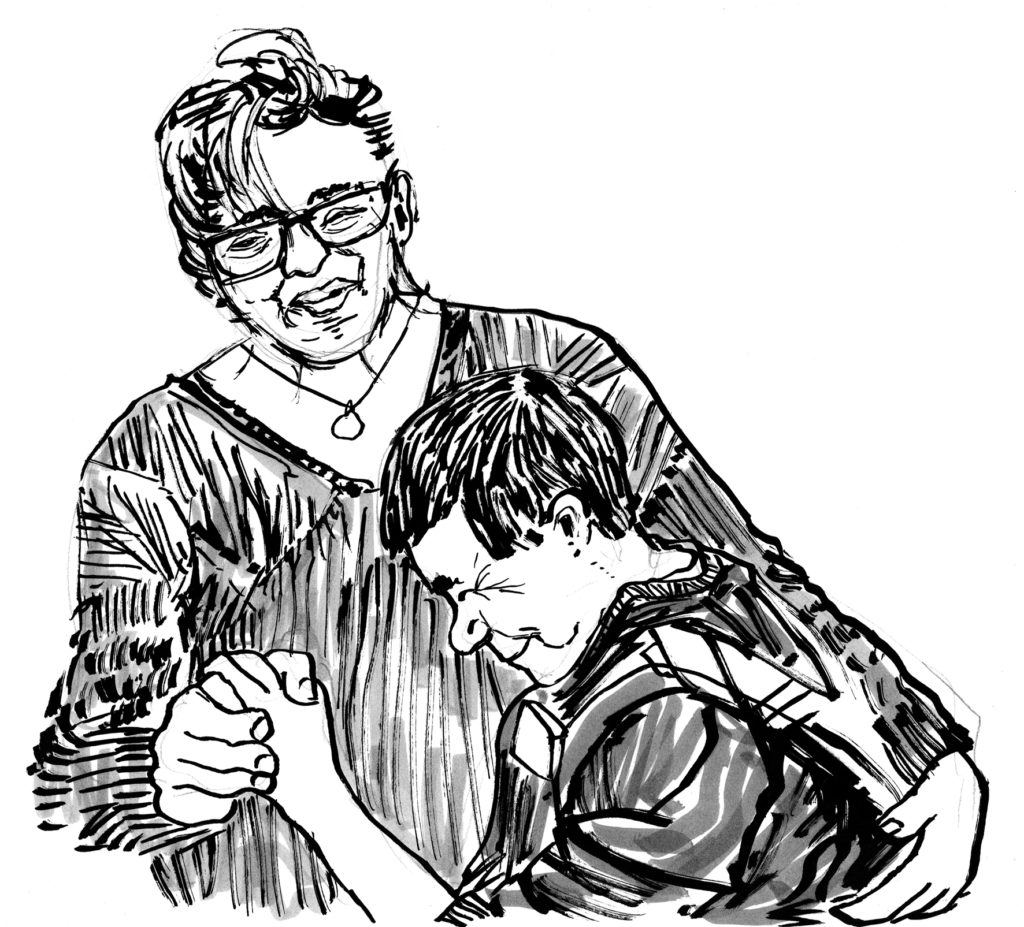
Profile
We will find new ways of capturing the impact and first-person experiences of art-making that reflect non-verbal, sensory, neuro-diverse and tactile contributions.
We will share the impact and learning with the arts and social care sectors through events, digital media and toolkits.
We will create a series of public art initiatives to bring inclusive arts into the public sphere and to the attention of more people.
We will engage with events of local, regional, national and international significance to increase the profile of art-makers with complex disabilities.
Sense will be recognised as a leading sector support organisation working across the boundaries of social care, art and culture.
Enabling Goals
- Growing financial sustainability
- Creating additional capacity
- Influencing the wider sector
- Reaching new audiences
Growing financial sustainability
Create a finance and fundraising strategy to achieve our ambition and strengthen our position going forward.
Explore constituting Sense Arts separately so we can apply for arts-led funding whilst remaining part of the Sense family.
Increase the annual income revenue for our Sense TouchBase Pears community programme.
Secure funding for major strategic initiatives, national programmes, capital projects and staff development.
Align with relevant regional strategic agendas and commissioning opportunities such as Link Worker training, social prescribing and art on prescription.
Diversify our revenue streams and create a balance between free, paid-for opportunities and commissioned activities.
Creating additional capacity
Further develop the indoor and outdoor space for arts delivery at Sense TouchBase Pears
Develop the current team, creating new roles of Sense Arts Programme Manager, Programme Coordinator and employ permanent Creative Facilitators (Performance, Music, Visual Arts) to position leaders as appropriate and future-proof the department in readiness for national growth.
Develop and deliver a staff engagement strategy to encourage staff involvement in our core offer (through support, volunteering, offering skills, training), as arts advocates and participants.
Enhance and deepen relationships with our stakeholders, including internal staff, donors, and volunteers to drive greater support and involvement with Sense Arts.
Increase our training capacity so we can nurture emerging talent, create a training programme for arts and social care professionals and offer volunteering, work experience, internship and apprenticeship opportunities.
Influencing the wider sector
Raise awareness of Sense Arts at strategic meetings and local, regional and national networking events (for example at Cultural Education Partnership meetings, Commonwealth Games, City of Culture) in order to become truly part of the established arts scene.
Undertake research and evaluation, including action research and impact studies, to develop an evidence base of what works to influence the wider sector and position us as leaders in inclusive arts.
Create opportunities for inclusive decision making and co-production by creating a steering group that engages the most important of our people, as experts in their own right, from planning delivery to review.
Work with organisations across all sectors to strategically review their creative offers and make accessibility recommendations that improve experiences for people with complex disabilities.
Reaching new audiences
Create a communication strategy to promote our work through campaigns and online content that has local, regional and national profile.
Create an audience development plan to identify and engage new audiences with our arts programme, such as children and young people, families, students and carers.
Expand the range of opportunities we offer, and ways people can engage with us, through one-off tasters, pop-up activity, relaxed events, exhibitions, courses and national flagship events.
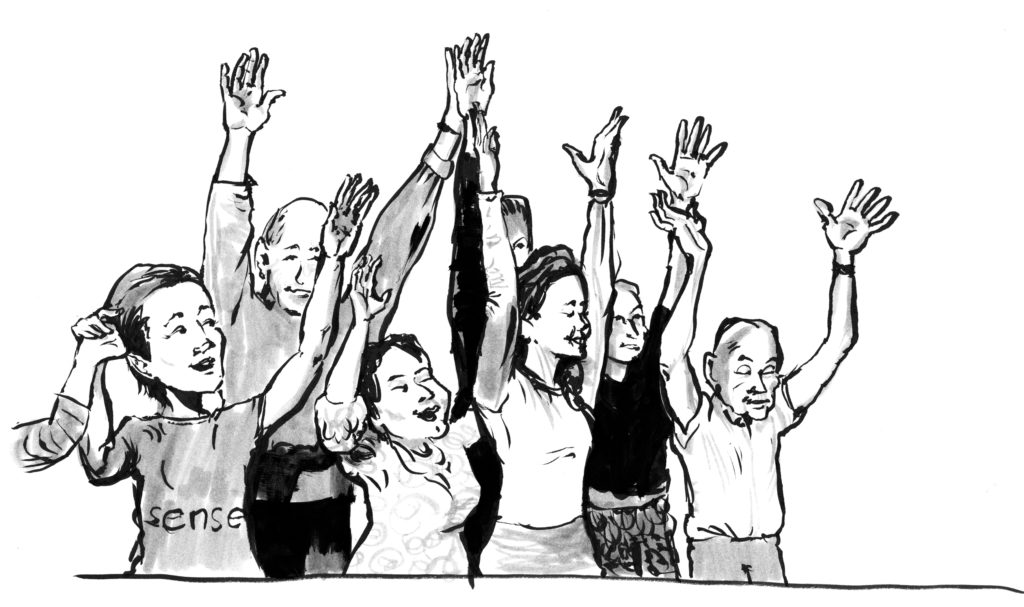
In the next 3 years, there will be:
- 30 artists trained & mentored in inclusive practice through our national Associate Artist Programme.
- 400 social care staff trained in collaborative art-making.
- 3 toolkits published to support the social care and arts sector in their approach to inclusion and diversity.
- 1 impact study published, reflecting on the health and wellbeing benefits of arts for people with complex disabilities.
- 3 public art initiatives delivered to raise public awareness of inclusive arts.
- 10 artists with complex disabilities receive professional development opportunities.
- 2,400 disabled people engaged across our national art programme (unique).
- 1 steering group, involving people with complex disabilities, will be created to shape our ongoing programme.
- 8,000 people attend an art session across our national programme (throughput).
- 30 freelance artists employed, 50% self-identify as disabled.
- 30 arts and cultural organisations receive support from Sense Arts to make their offer more inclusive, including through joining our Objects of Reference campaign.
- 30 exhibitions by disabled and inclusive artists hosted in our gallery space.
- 3 regional or national cultural events connected to Sense Arts to increase access for people with complex disabilities.
- 125,000 audience members engaged with our events and public programmes.
- 6 artists engaged in a Research and Development focussed Artist in Residency programme.
- 10 Sense shops collaborate with us on our Found Objects project
- £350,000 invested in our art spaces to expand our programme
- 35 events and initiatives created to reach new audiences including children and young people, carers and older groups.
Objects of Reference
‘Objects of Reference’ (OOR) is a communication system used by people with complex disabilities. It involves using any object systematically to represent an item, activity, place, or person.
Objects are held and touched before and during an activity to help communicate what is happening. We are engaging with cultural venues, who will create their own unique object of reference, as a first step towards creating inclusive cultural places for people with complex disabilities. This arts-led project and exhibition will highlight the creative opportunities and tools for increasing inclusion and access across the sector.
Found Objects
‘Found Objects’ is an arts collaboration with the Sense Trading team and a professional development experience for disabled art-makers. Together with an artist mentor they will source everyday objects in our Sense shops and give them a new lease of life from modification and manipulation, creating a final tactile sculpture to be felt in the public sphere.
Associate Artists Programme
Sense Arts ‘Associate Artists Programme’ is designed for artists with at least five years’ art delivery experience who want to establish their practice in inclusive arts. The programme aims to provide a mutually supportive context in which to develop work, deliver activities and build networks with other artists on the programme. The programme will provide learning opportunities, mentoring support and training from within Sense. There will be support to apply for additional funding and access to resources and studio time to develop their own professional practice.
By 2022, Sense will be known as the champion of inclusive arts for people with complex disabilities across the country, with Sense Touchbase Pears as the centre of excellence.
We will be established in our role in empowering participants, nurturing artists, driving ground-breaking collaborations and providing long-term employment for disabled artists.
This will be achieved through the delivery of an established and sustainable rolling programme of high quality, inclusive activities, events, partnerships and programmes.
This will position Sense Arts as a leading sector support organisation; sharing knowledge and learning with the arts, health and social care sector and the wider creative, cultural and education sectors.
Get in touch
If you want to develop your knowledge, learning, skills and experience to creatively engage with individuals with complex disabilities, you can connect with Sense Arts. Email us at [email protected] or phone us on 0121 415 2720.
“I feel that Sense Arts really helped me develop my art and make it accessible to people with complex disabilities and sensory impairments and help them to experience it. It has made me think harder and more creatively about ways to include them in my artwork.”
Deaf artist
“The collaborative art-making training delivered by Sense Arts was very good at teasing out our creativity and it was a lot of fun. It showed us that we are all creative and really opened my eyes to the importance of creativity for helping our guys to express themselves.”
Sense support worker
Thank you.
Many people have been involved in the development and creation of our new strategy Space to be Different. It has been a truly collaborative experience!
Special thanks to the Arts Council of England for funding this work, to Ruth Richardson for her guidance and support throughout the process, to Zoe Robertson for her creativity and input on the arts collaboration & sculpture and to Paul Hicken for his artistic contributions.
Thanks to Swoomptheeng for lending us THA DAANCE MAAST to enable collaborations between people with complex disabilities and the wider community and to Chris Murray, Ben Jones, Simon Walker and Channi Dorset for the wonderful illustrations and designs found in this document.
To all of our Sense colleagues who have supported and given their feedback and input into the strategy.
And most importantly, a big thank you to all of the art-makers – you are the inspiration for everything we do.
Sources
Fresh Minds (2007) Culture on Demand: Ways to engage a broader audience, DCMS Arts Council England (2011) The Creative Case for Diversity
Barnes, C. (2003) ‘Effecting change; Disability, culture and art’? Finding the Spotlight Conference. Liverpool Institute for Performing Arts
Green and Newsinger (2014) Disabled Children and Young People: engagement in arts and culture in the East Midlands in an environment of restrained resources
Social Care Institute for Excellence & All-Party Parliamentary Group on Arts, Health & Wellbeing (2017) The Role of the Arts and Culture in Social Care, Policy Briefing
Sutcliffe, A. (2016) The Art of Being Outstanding: CQC
This content was last reviewed in April 2022. We’ll review it again next year.

